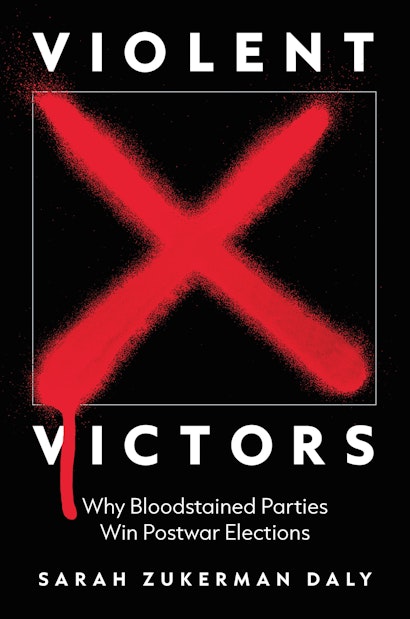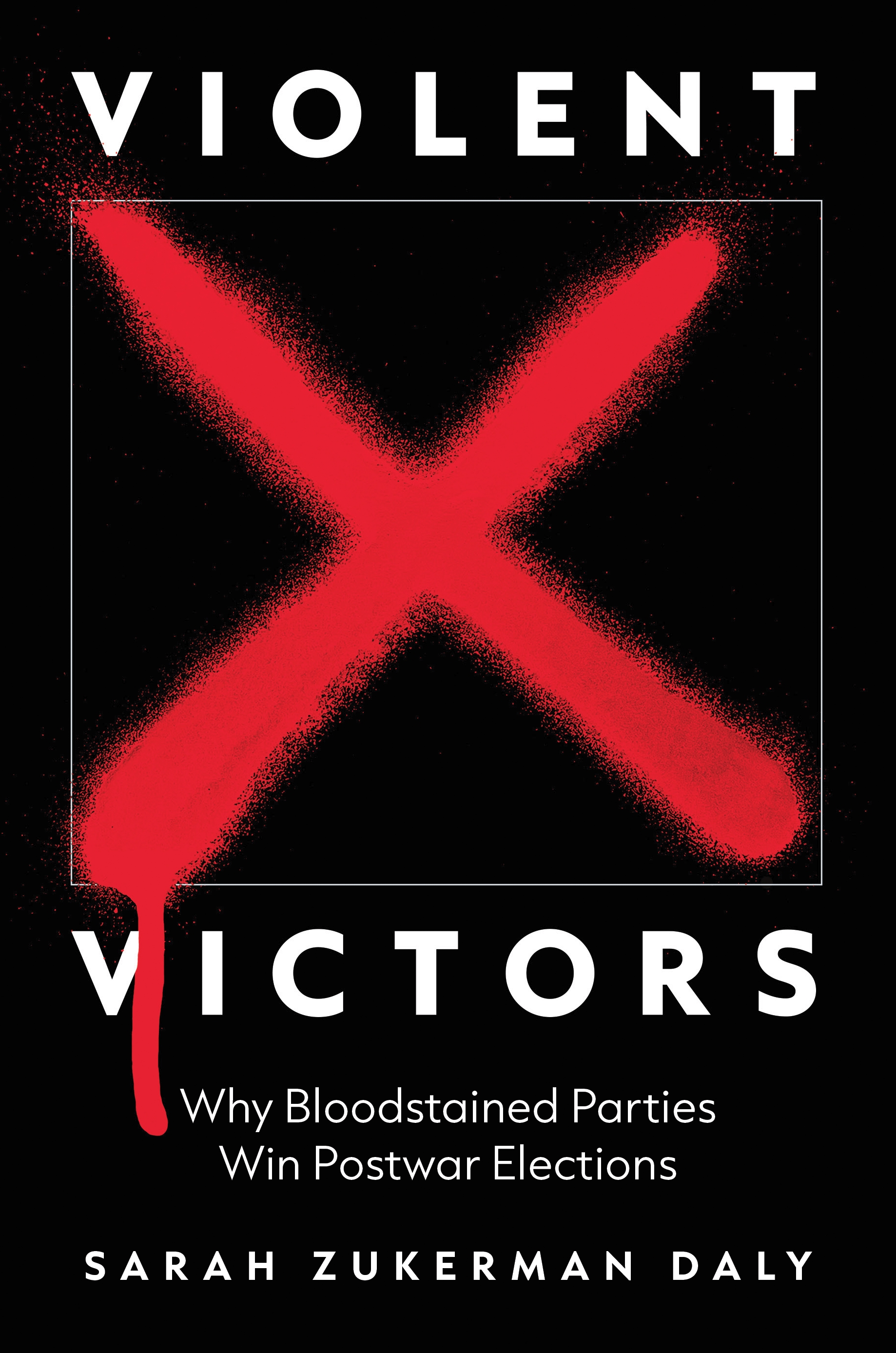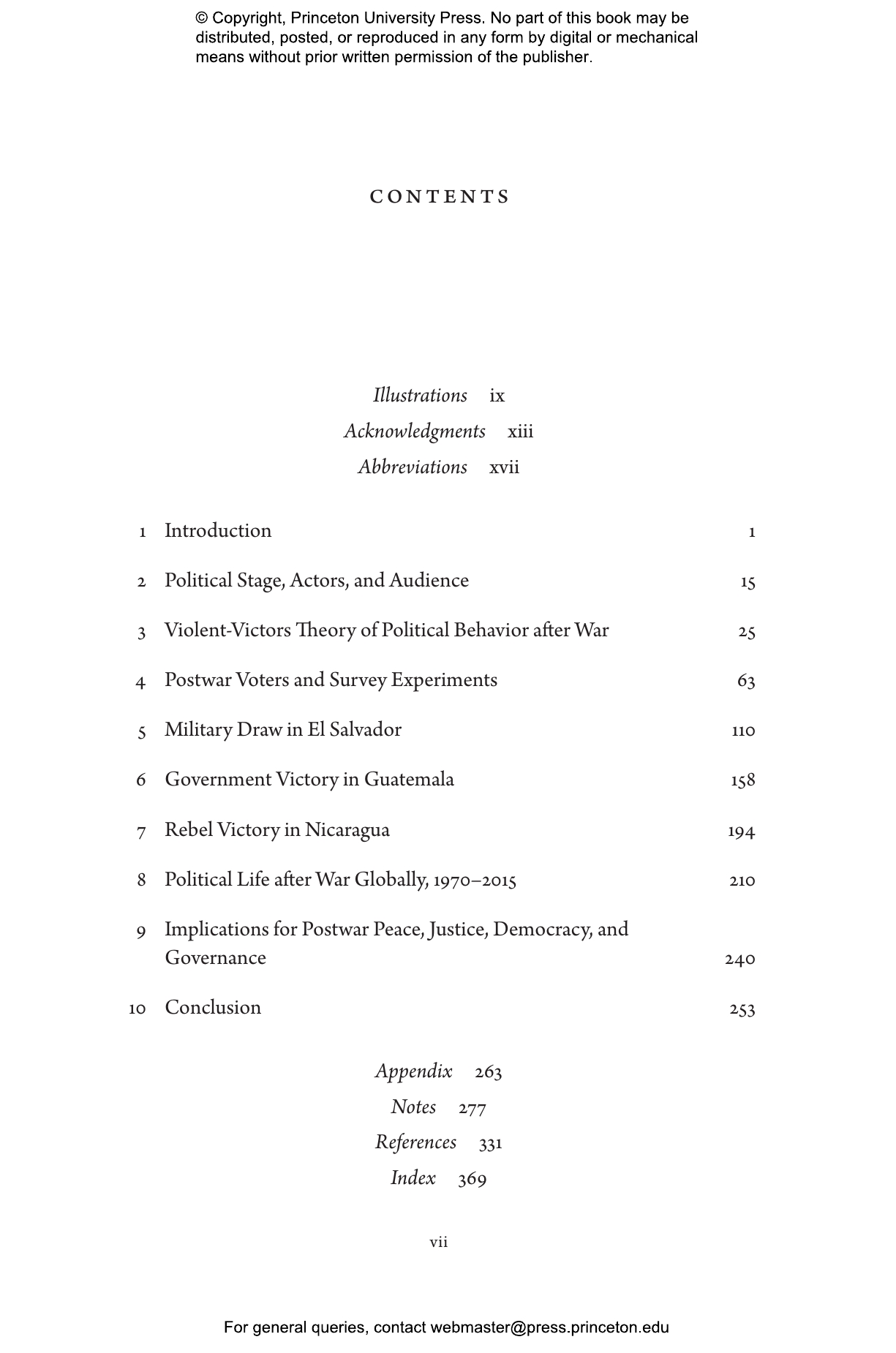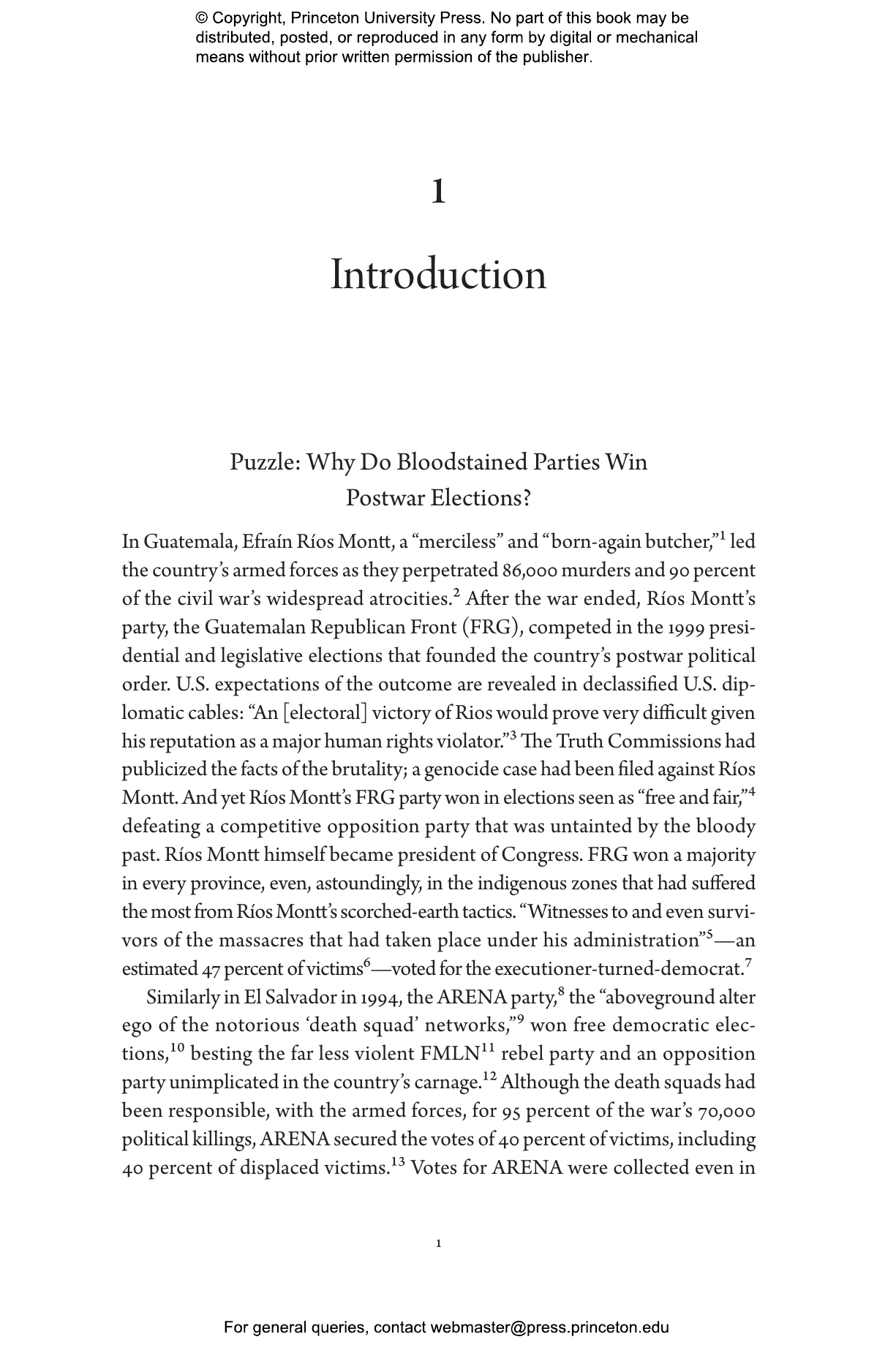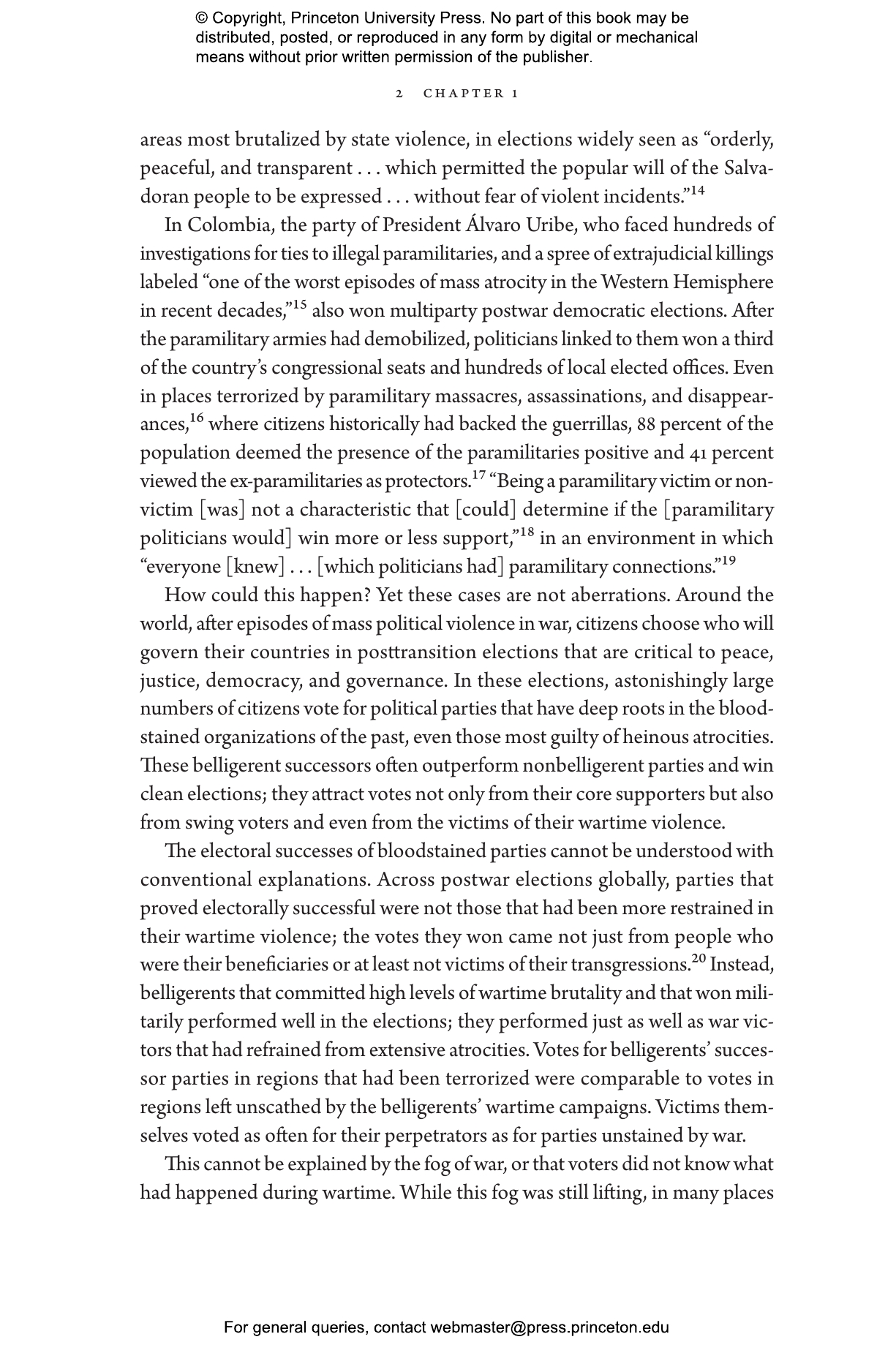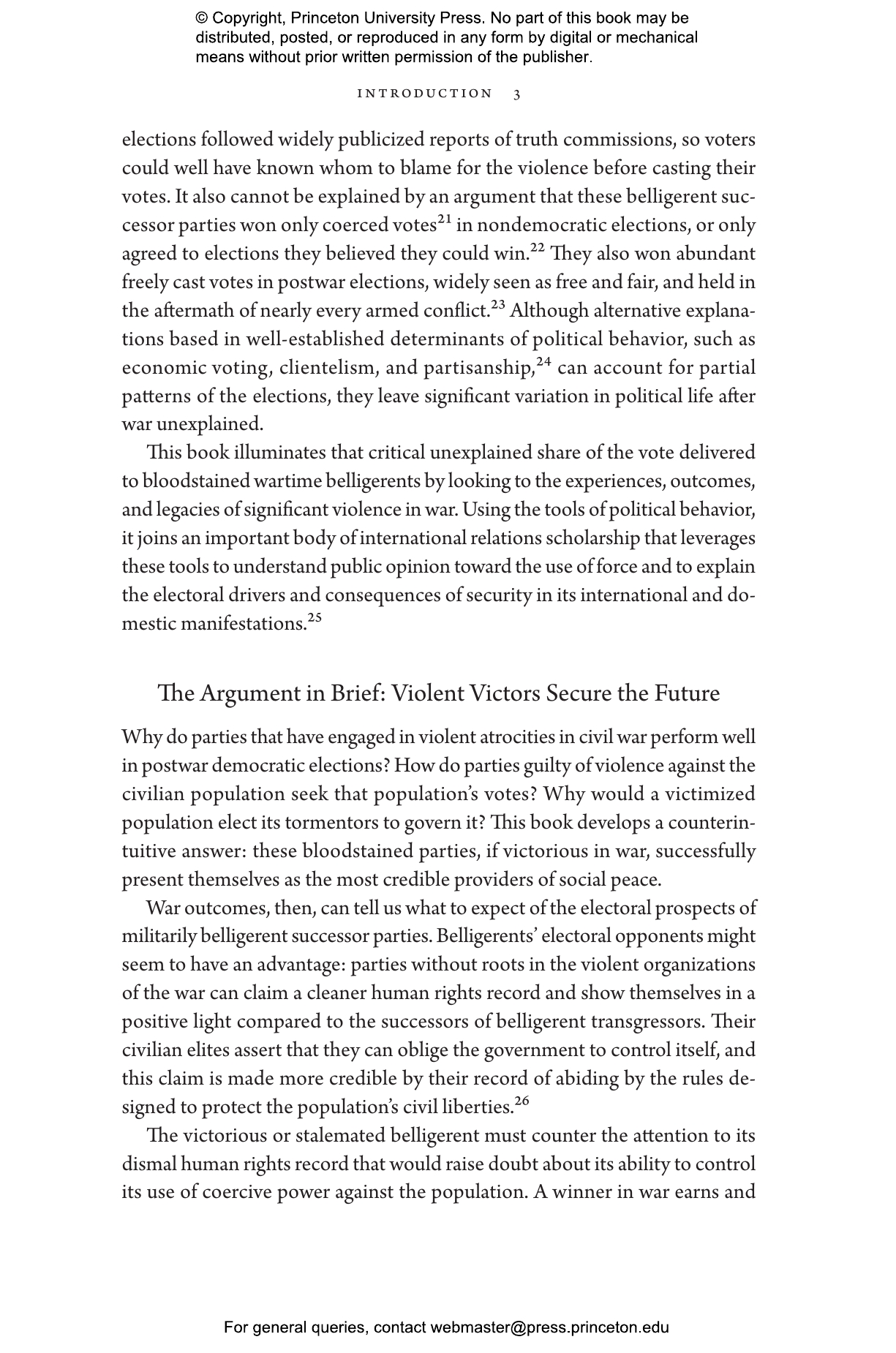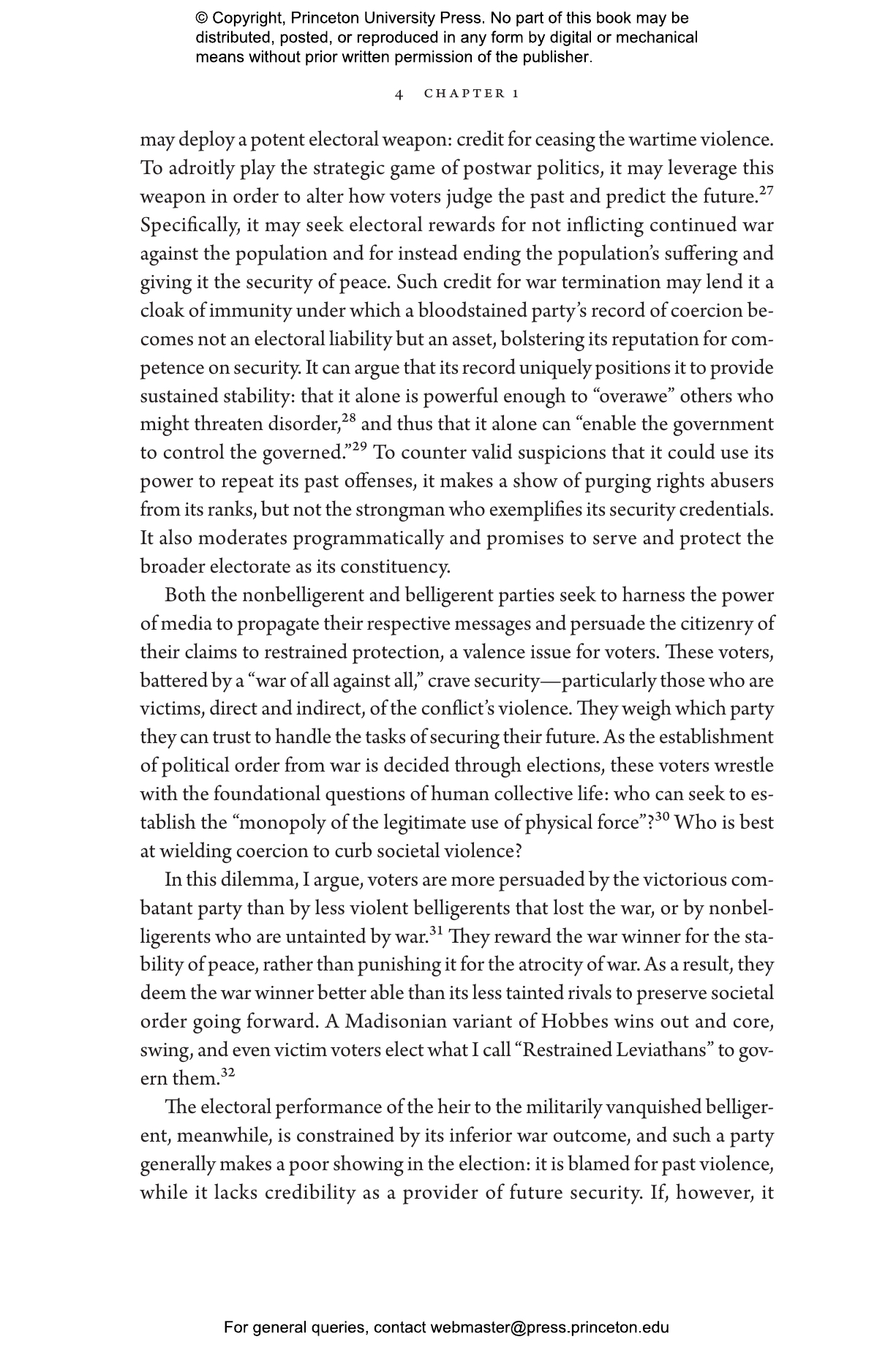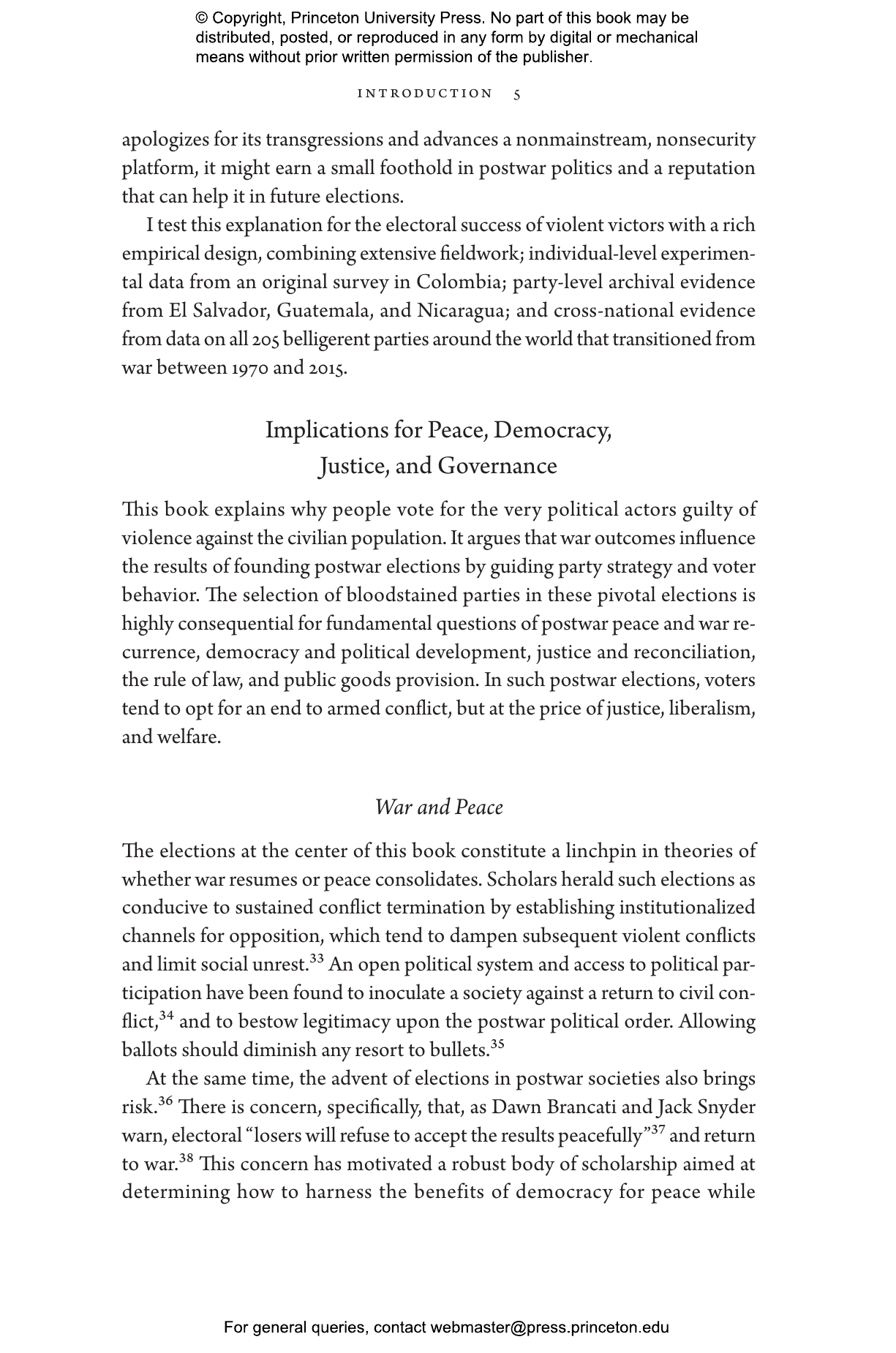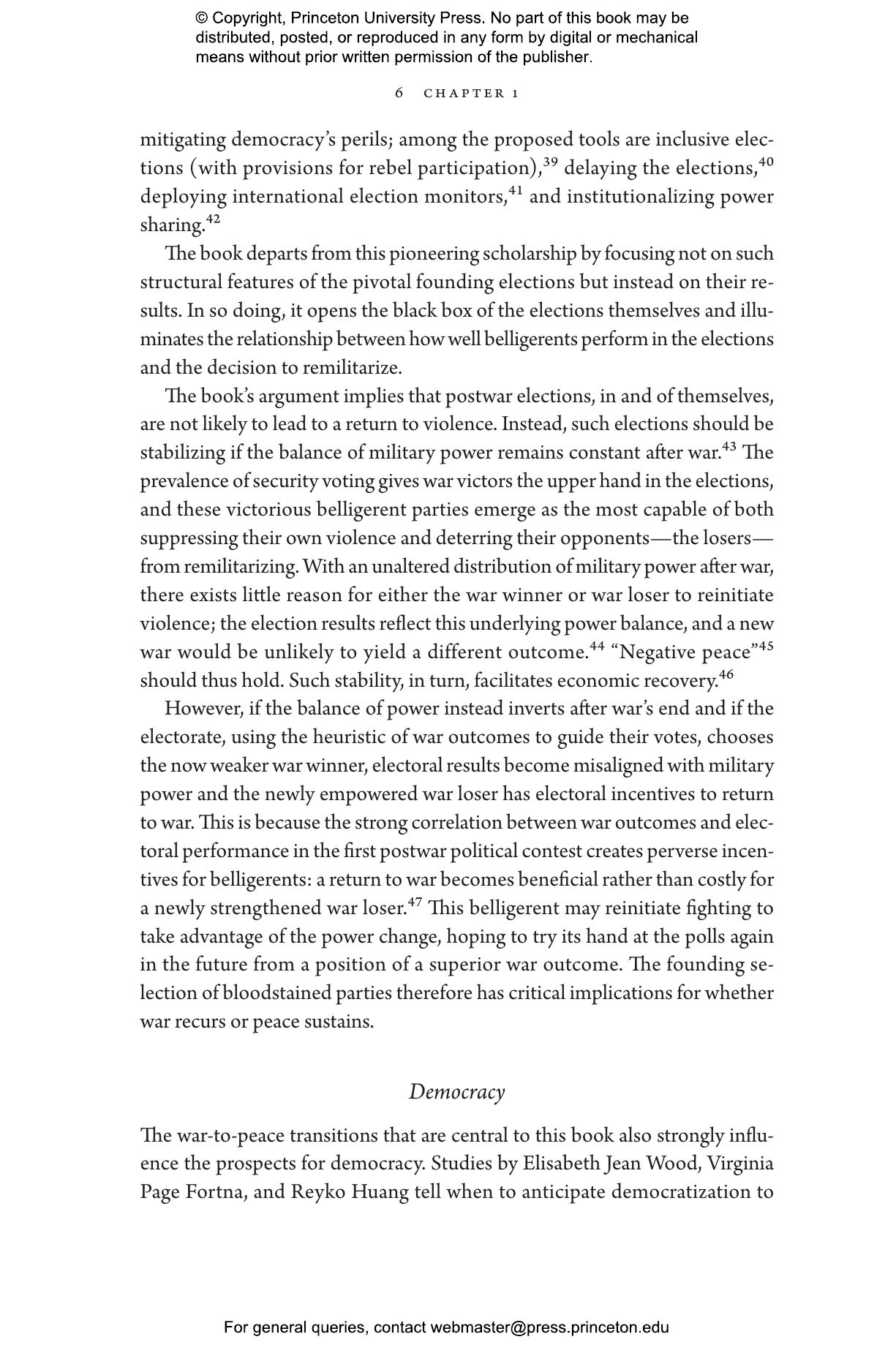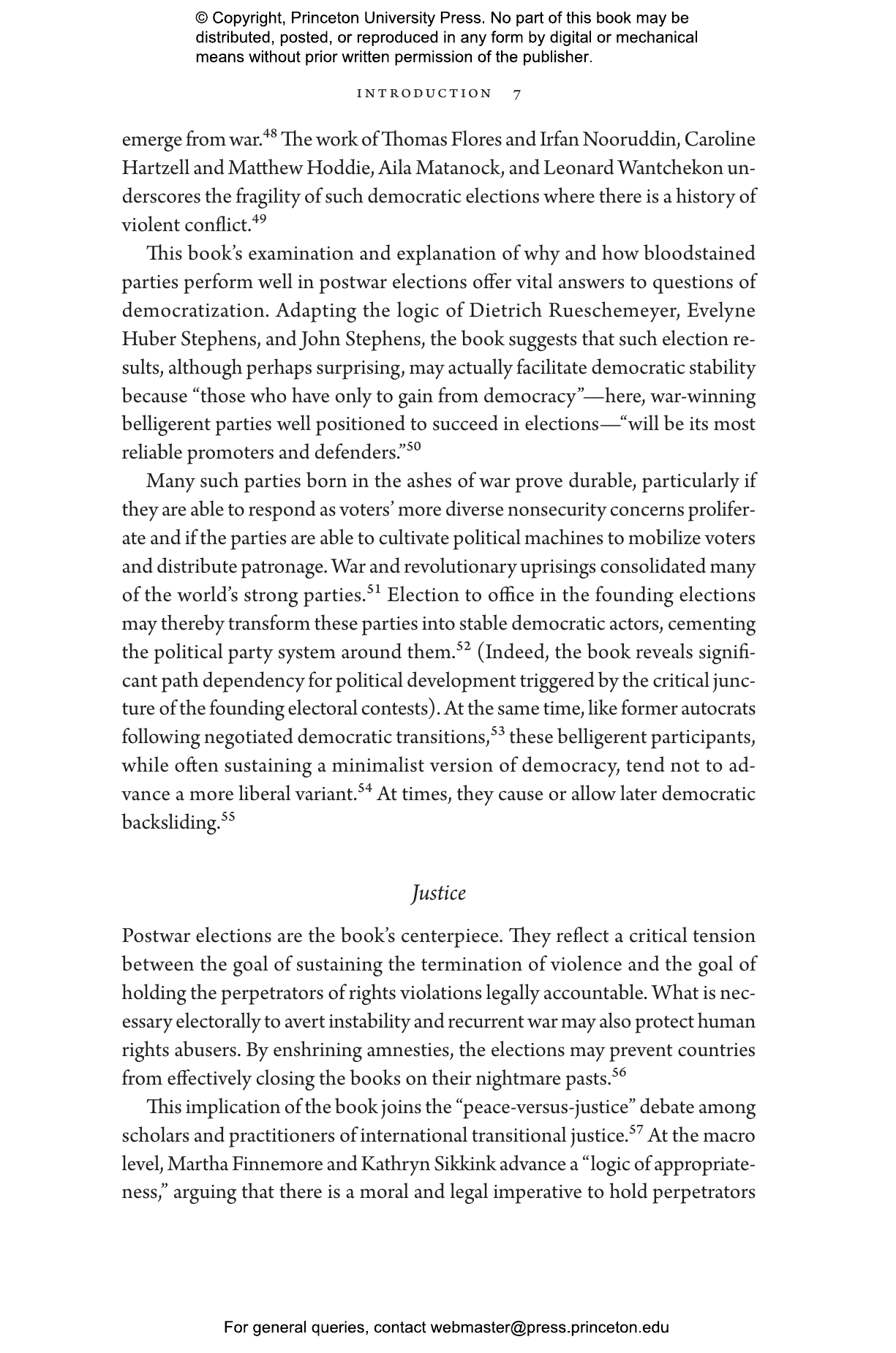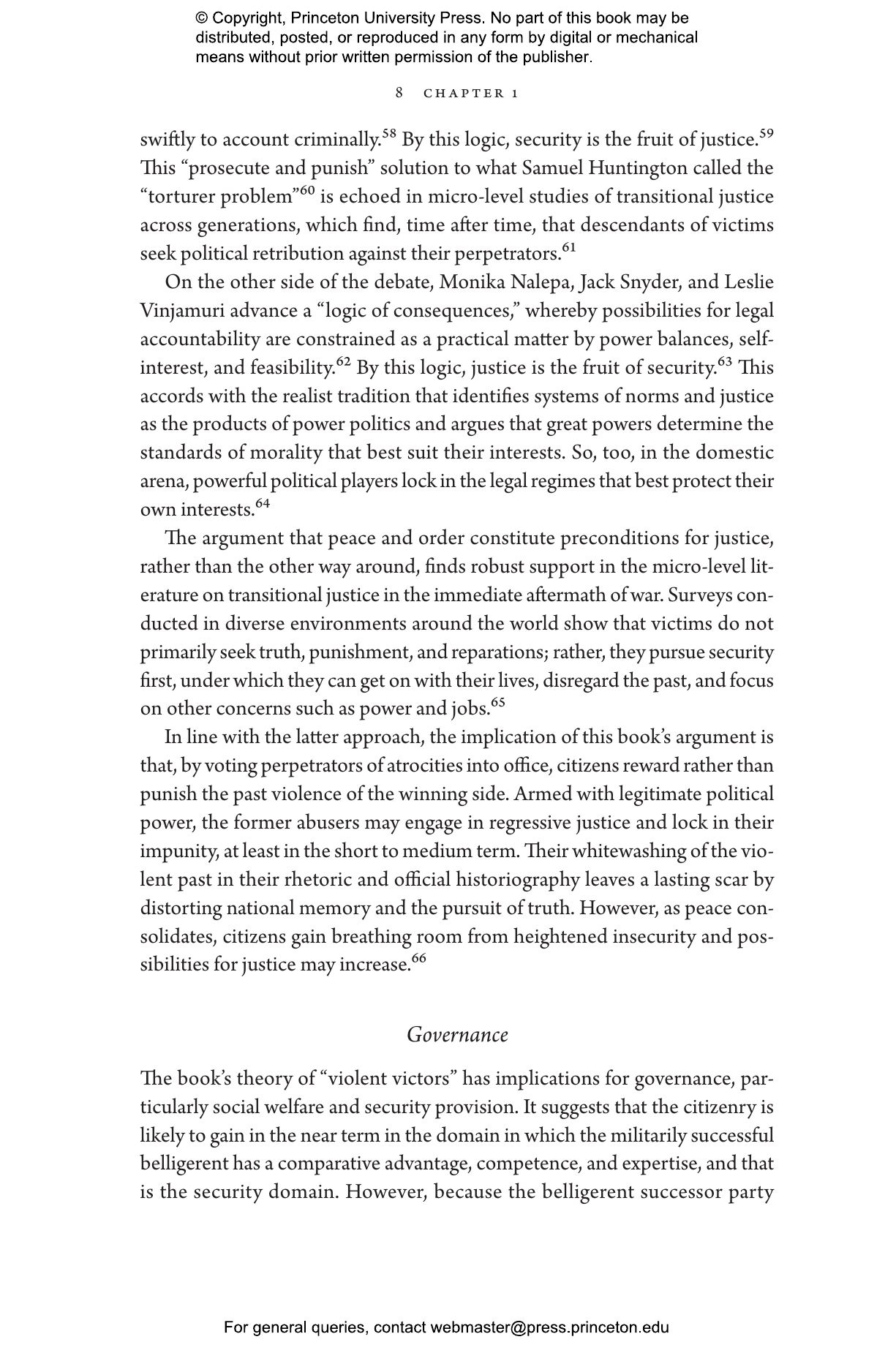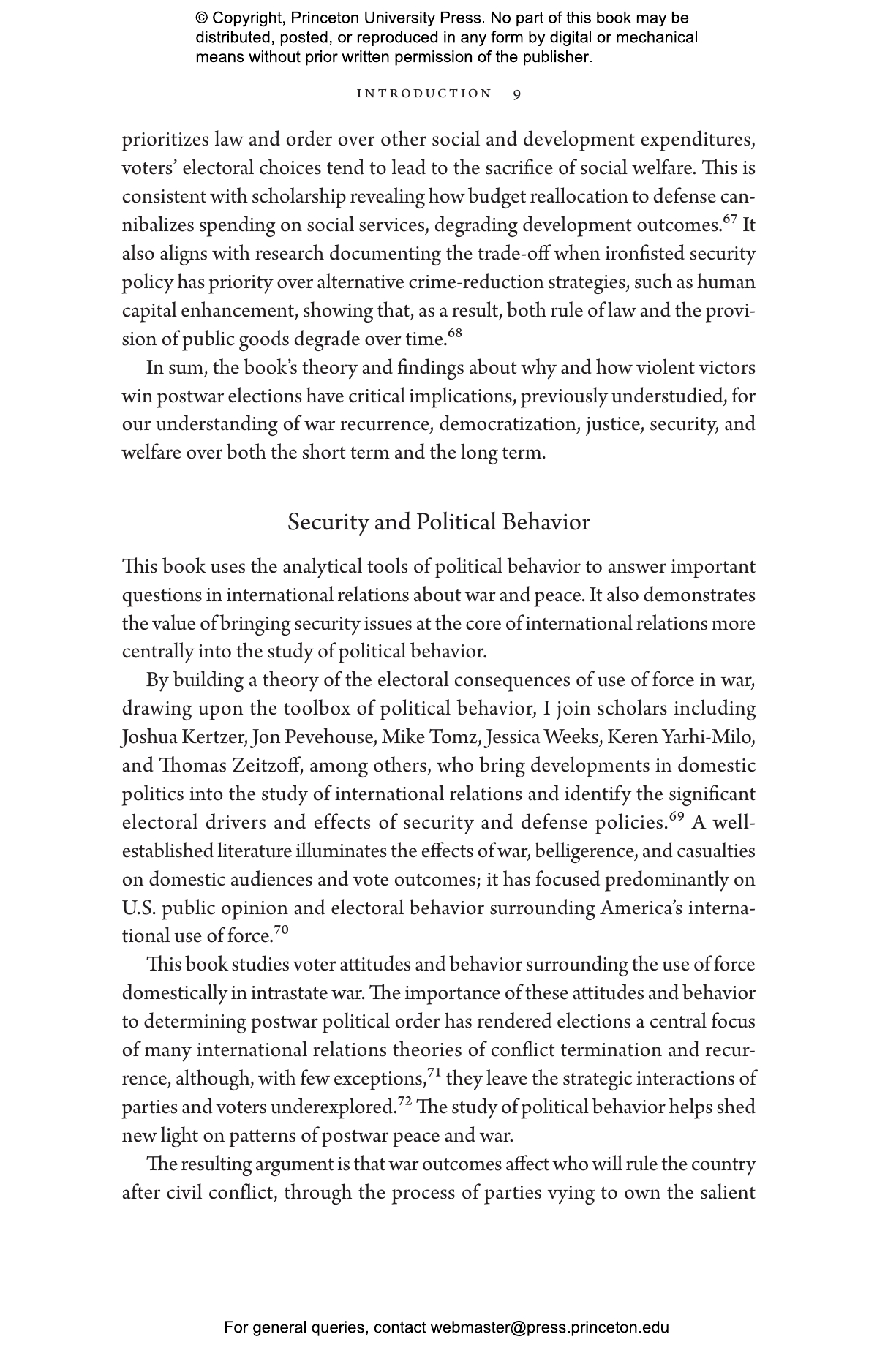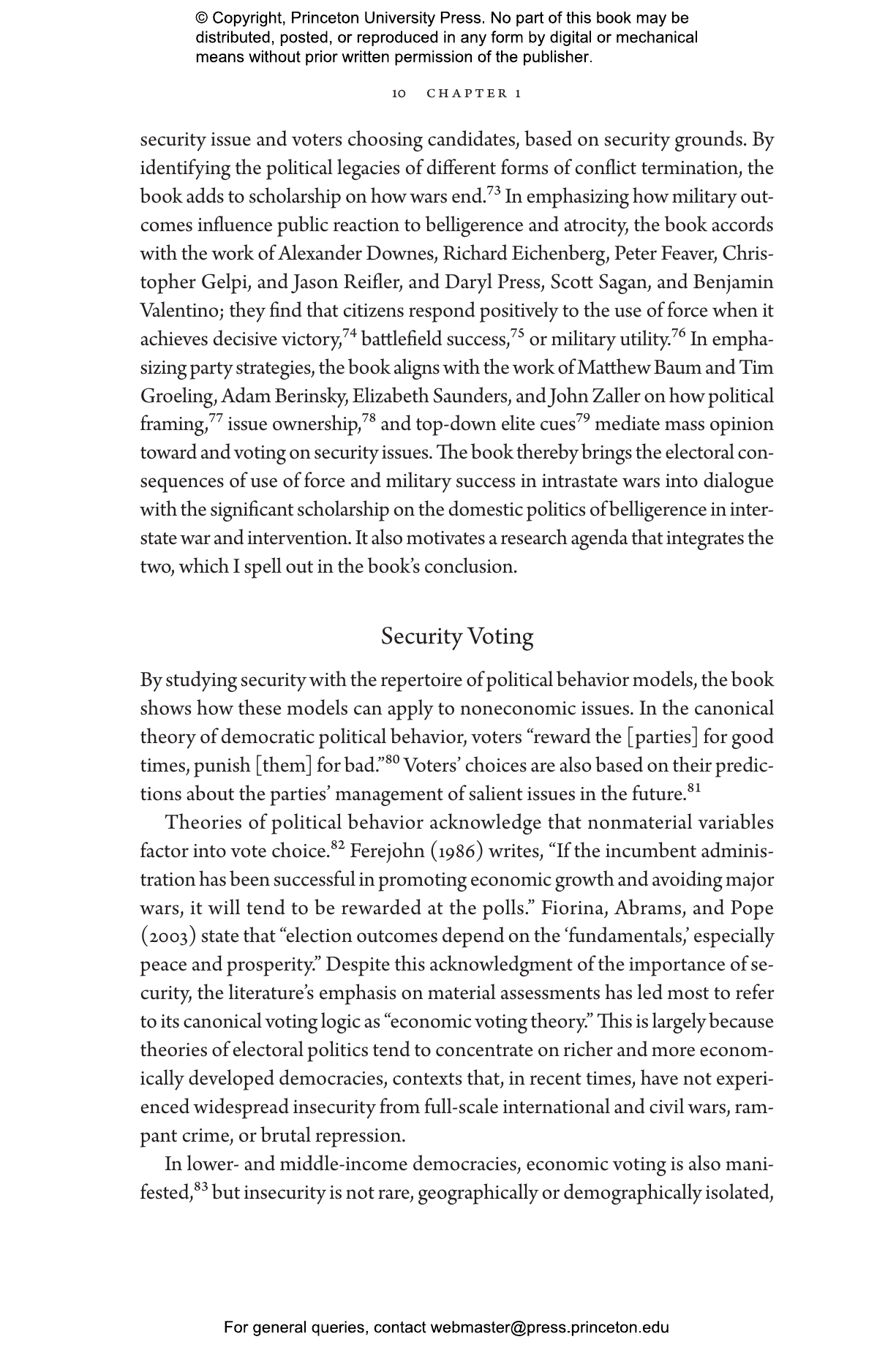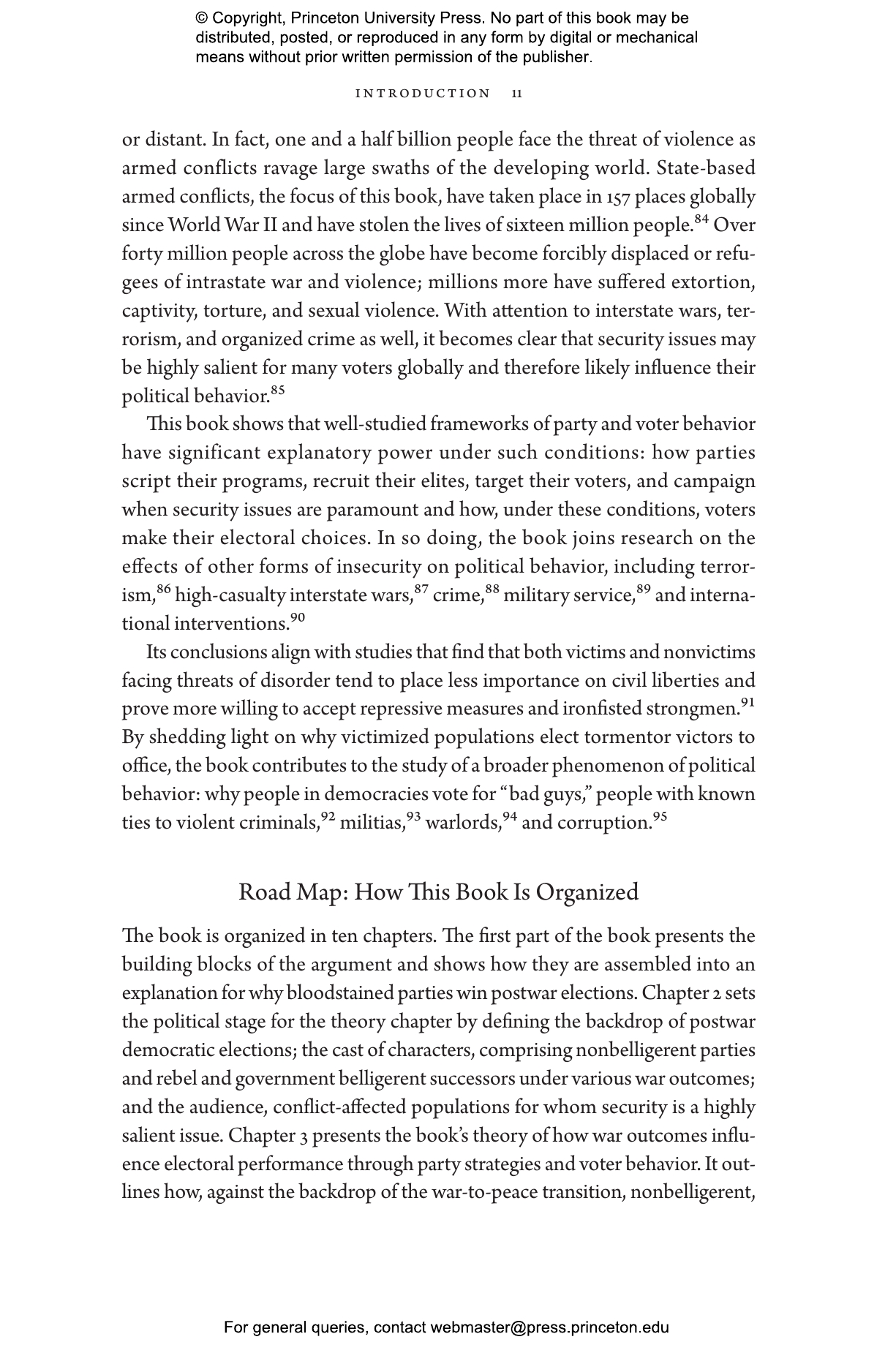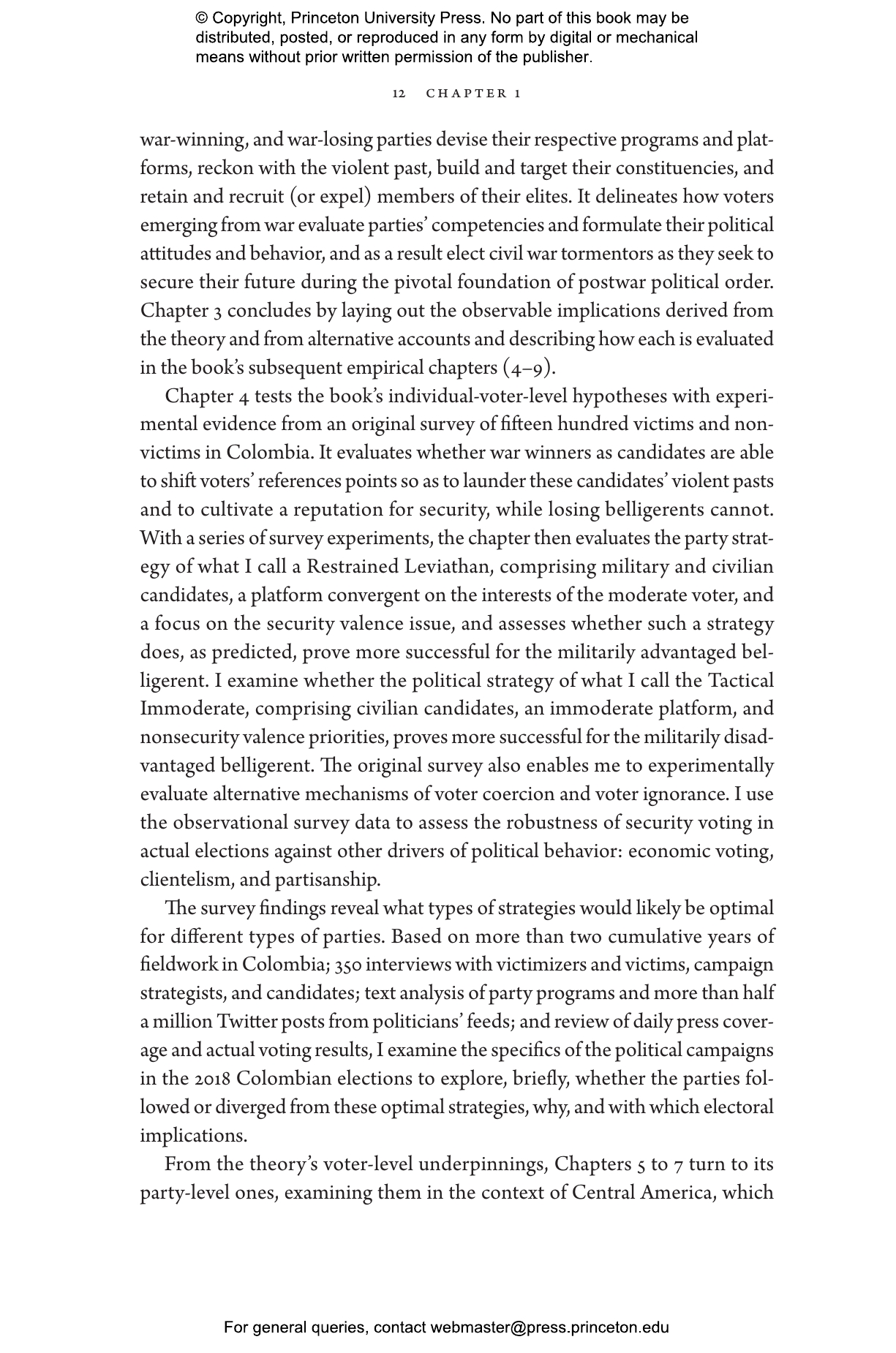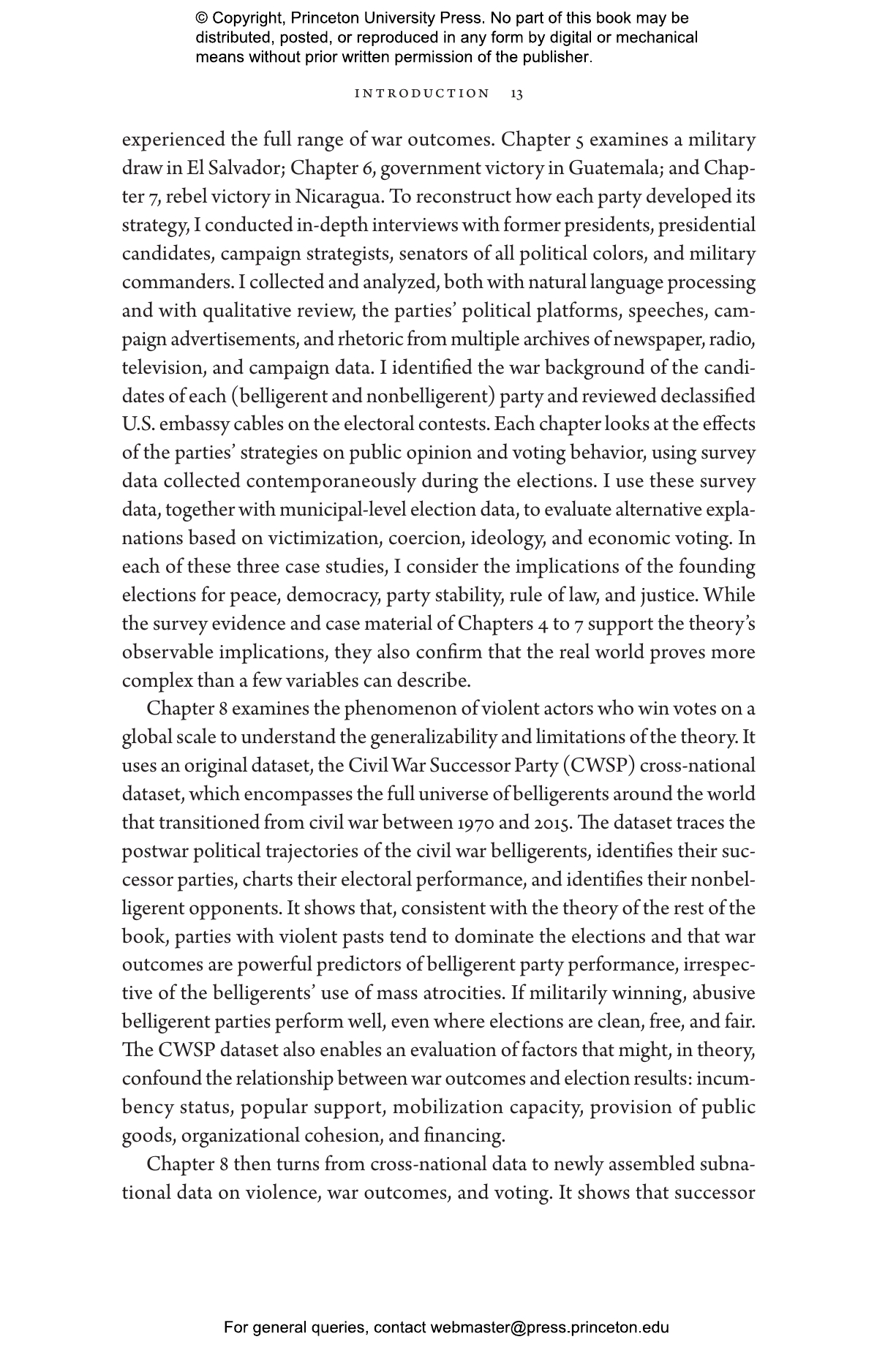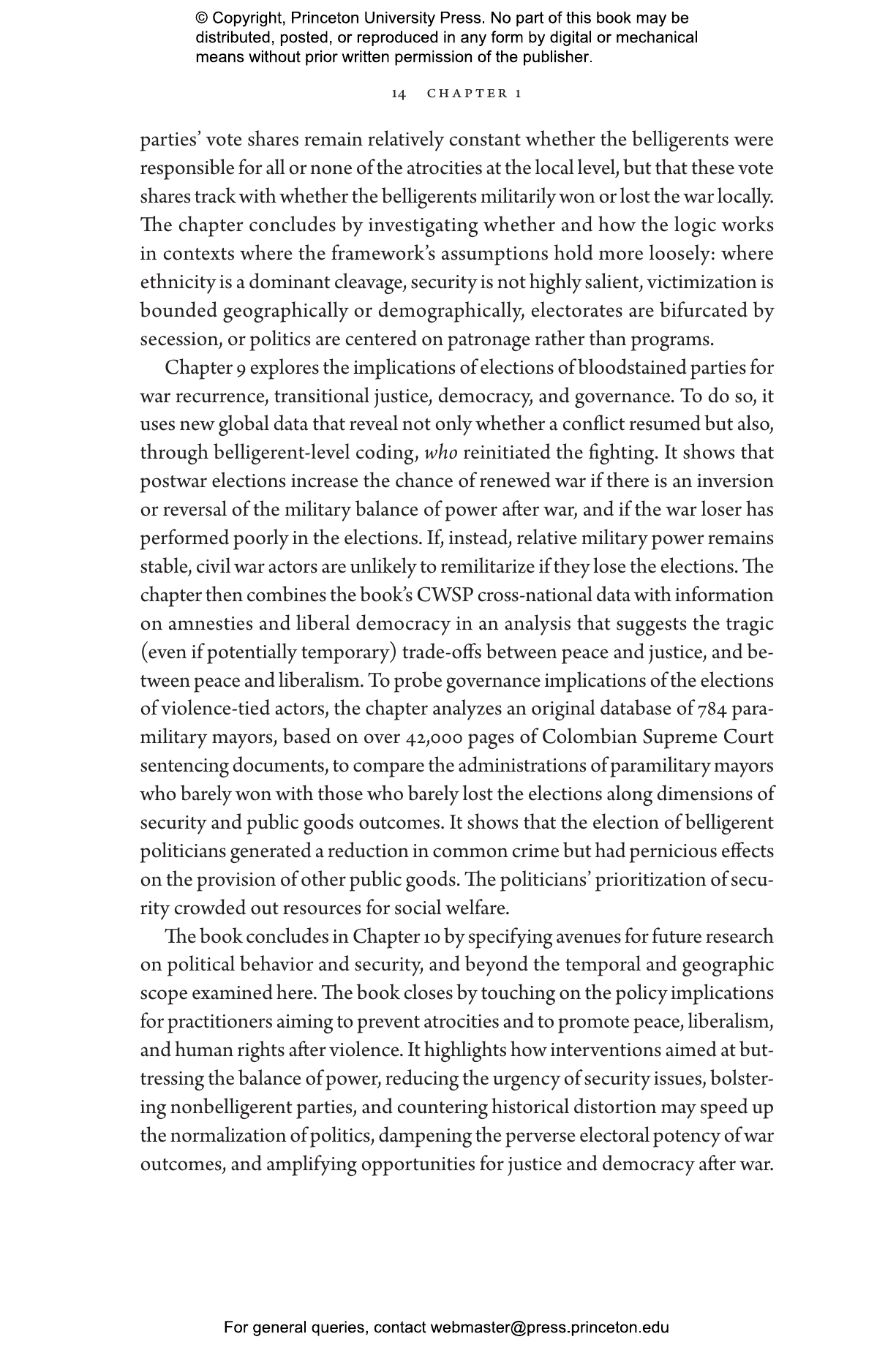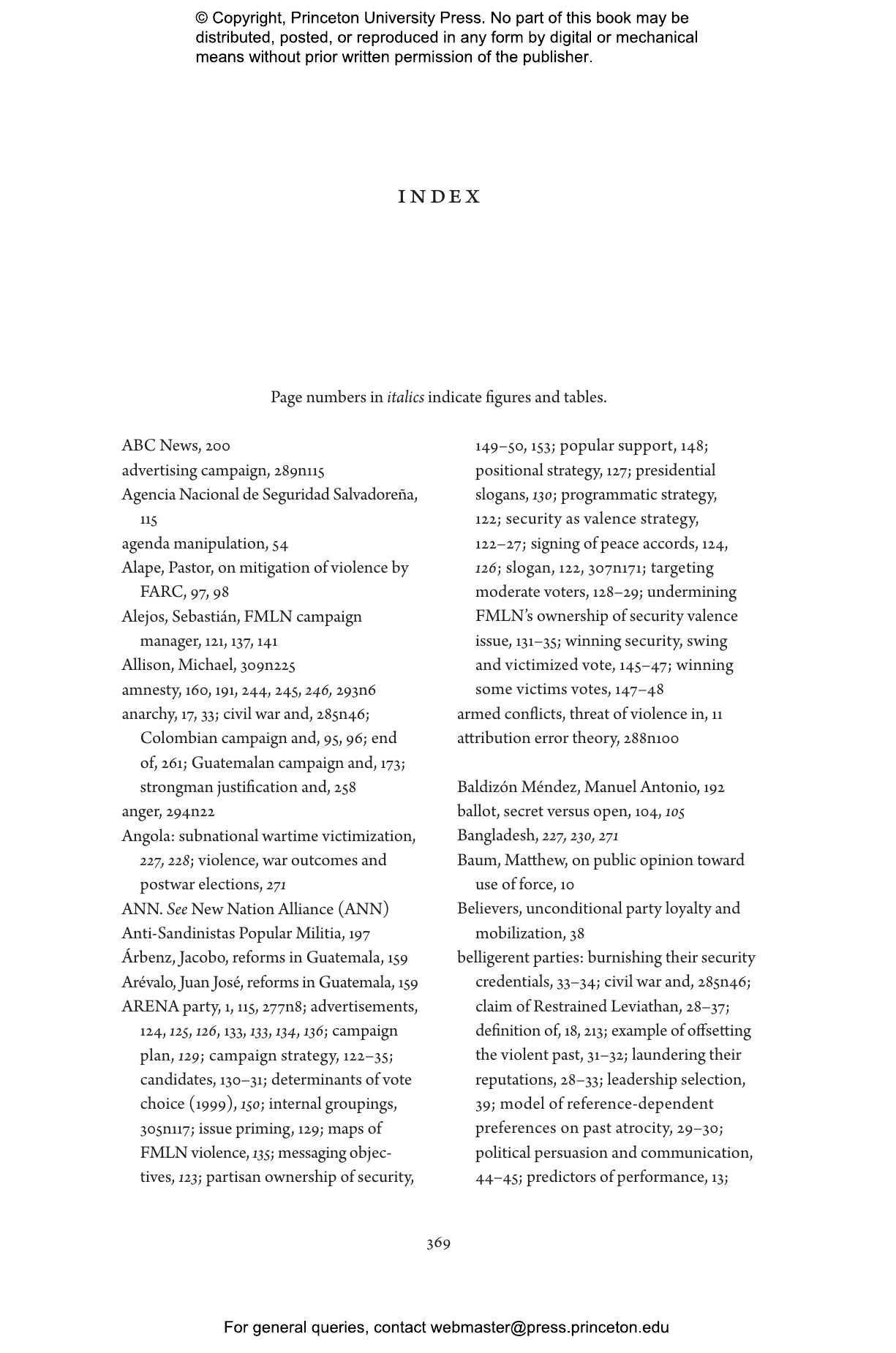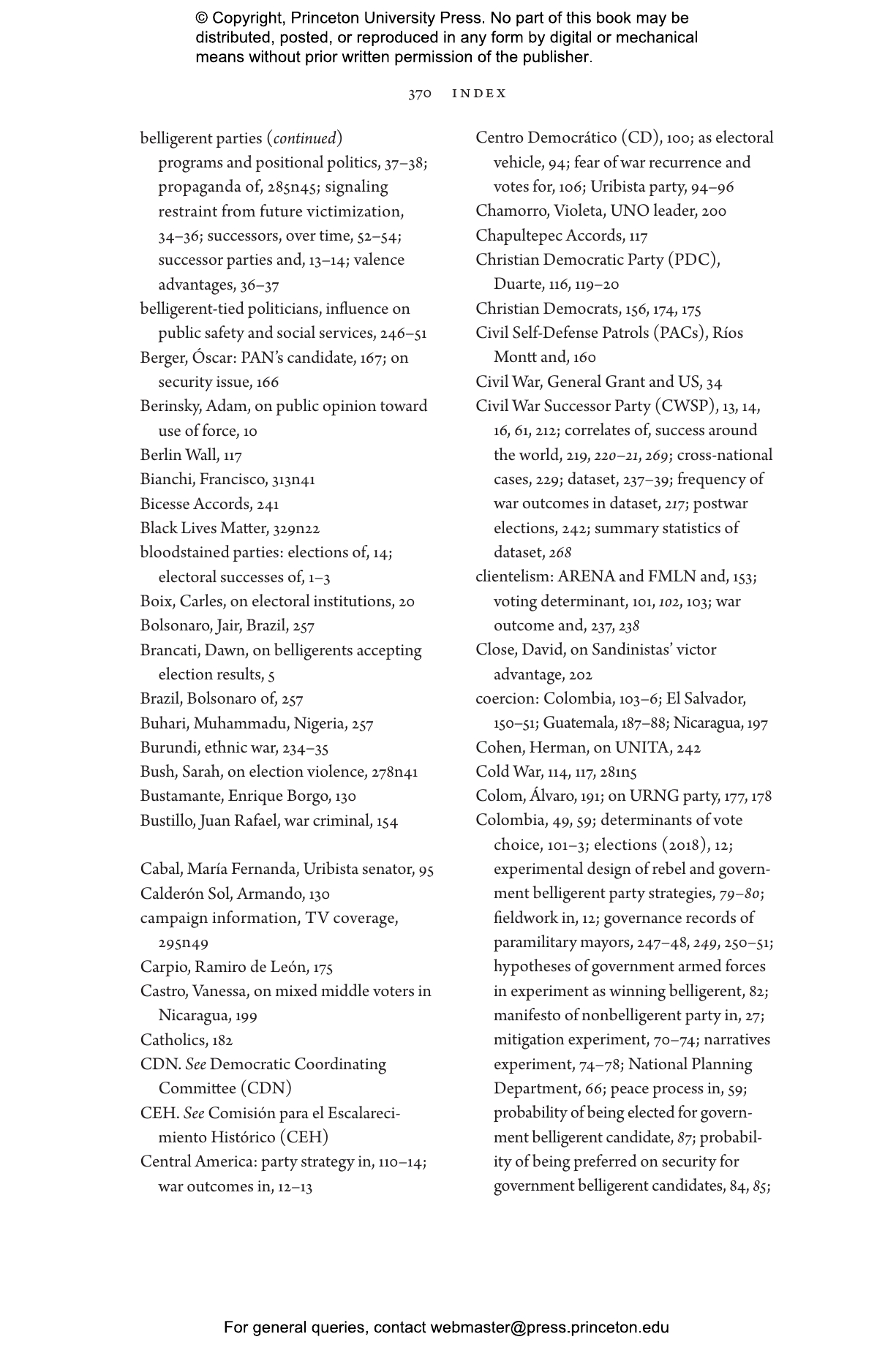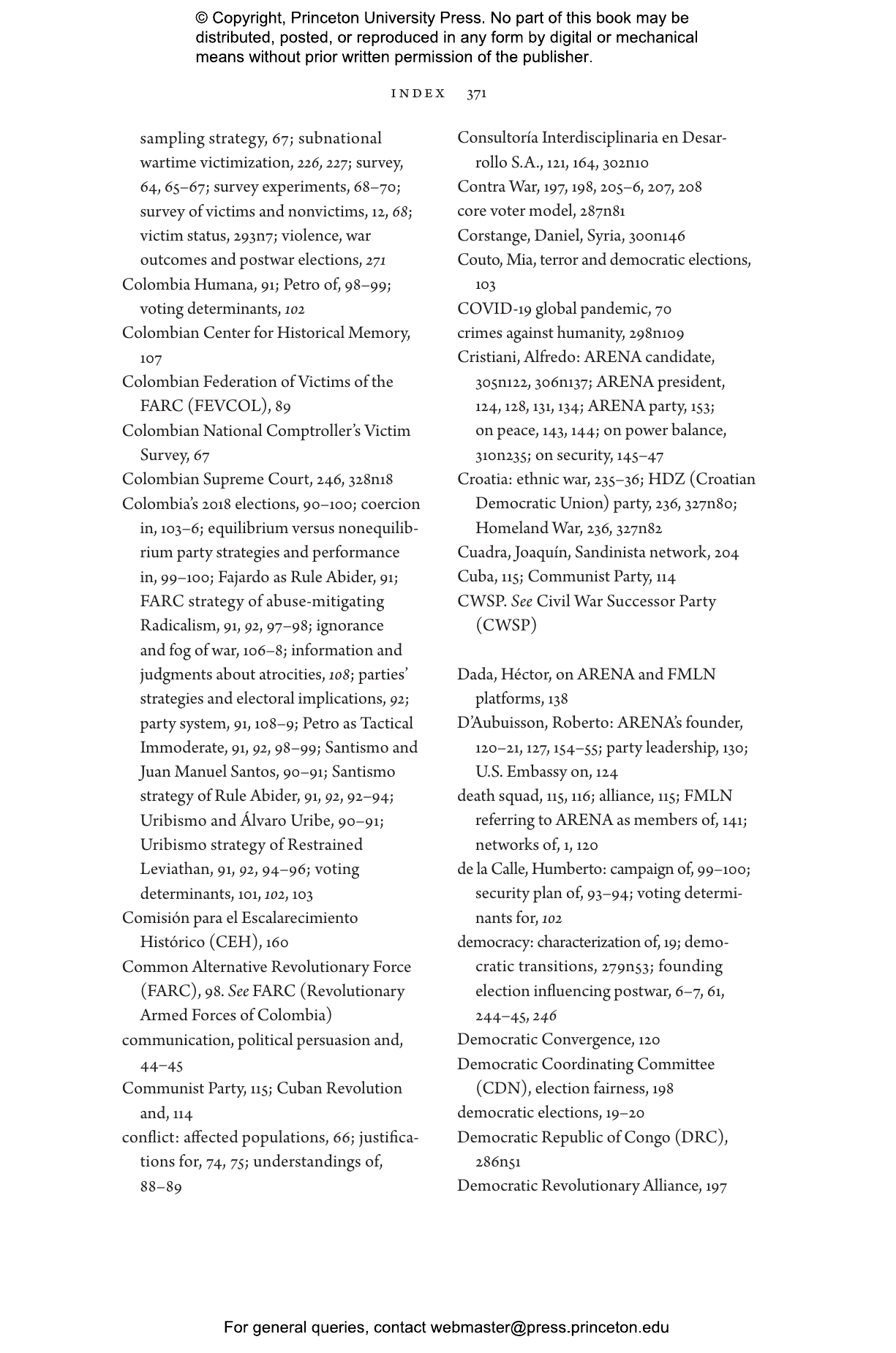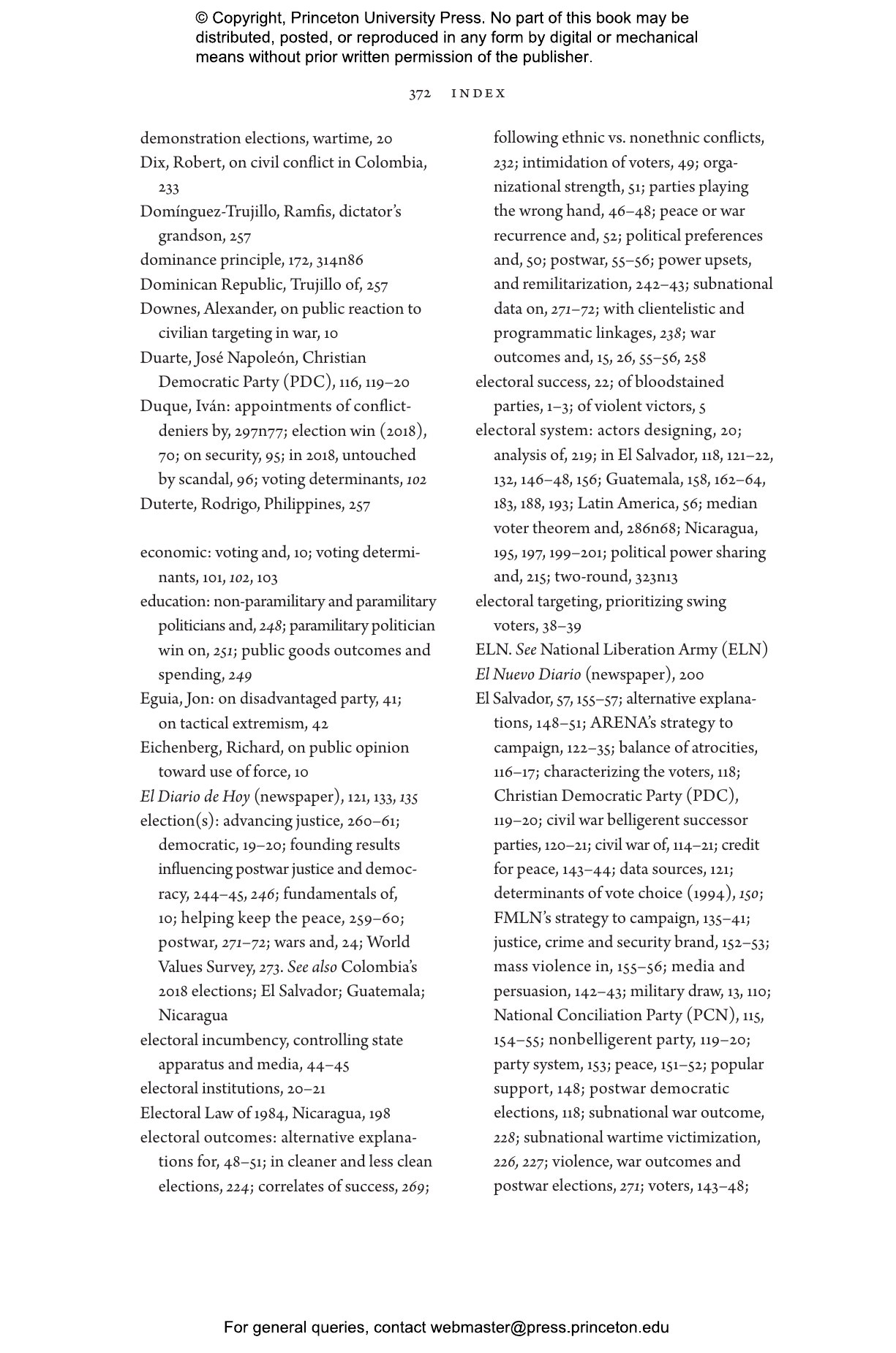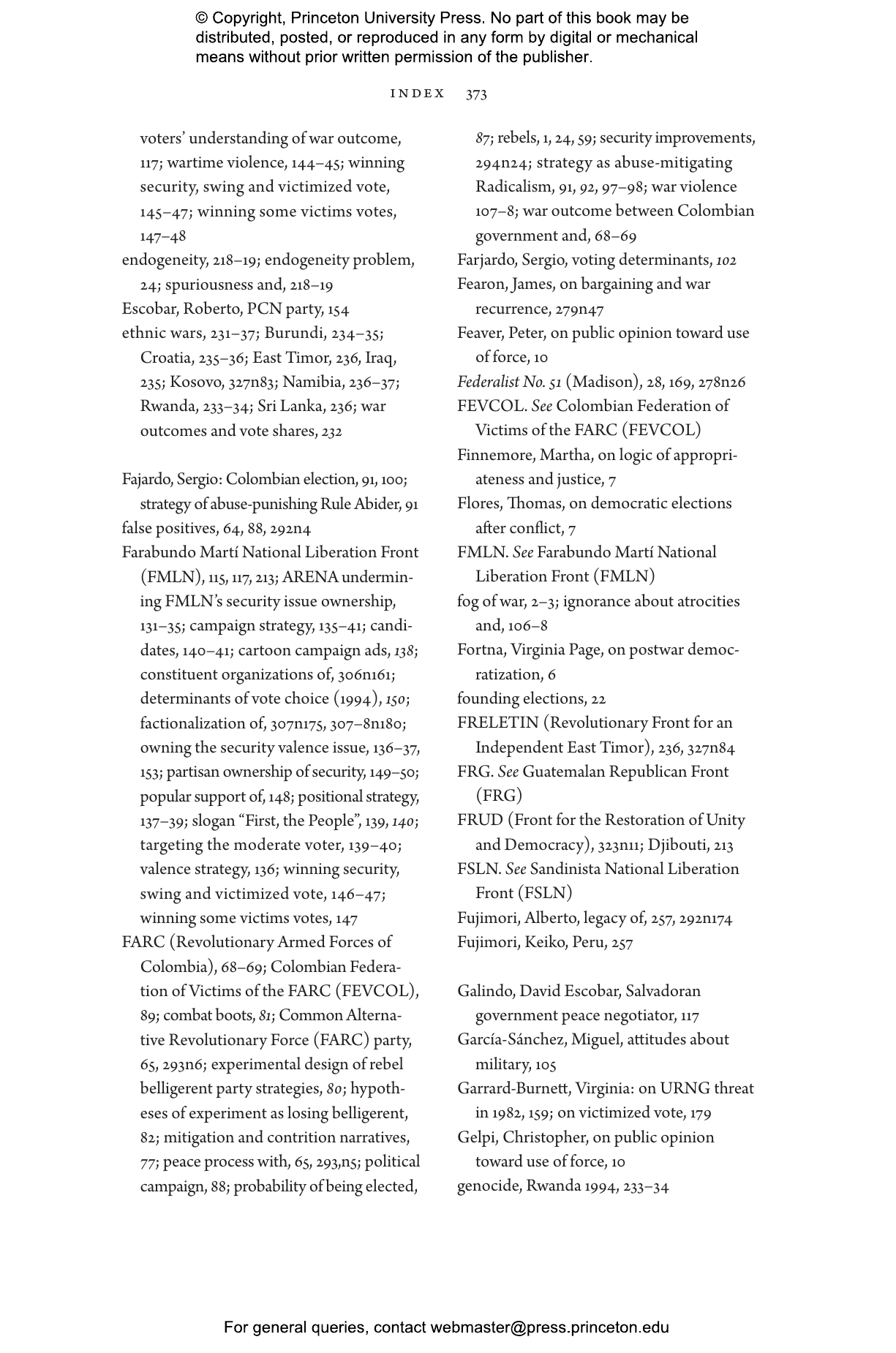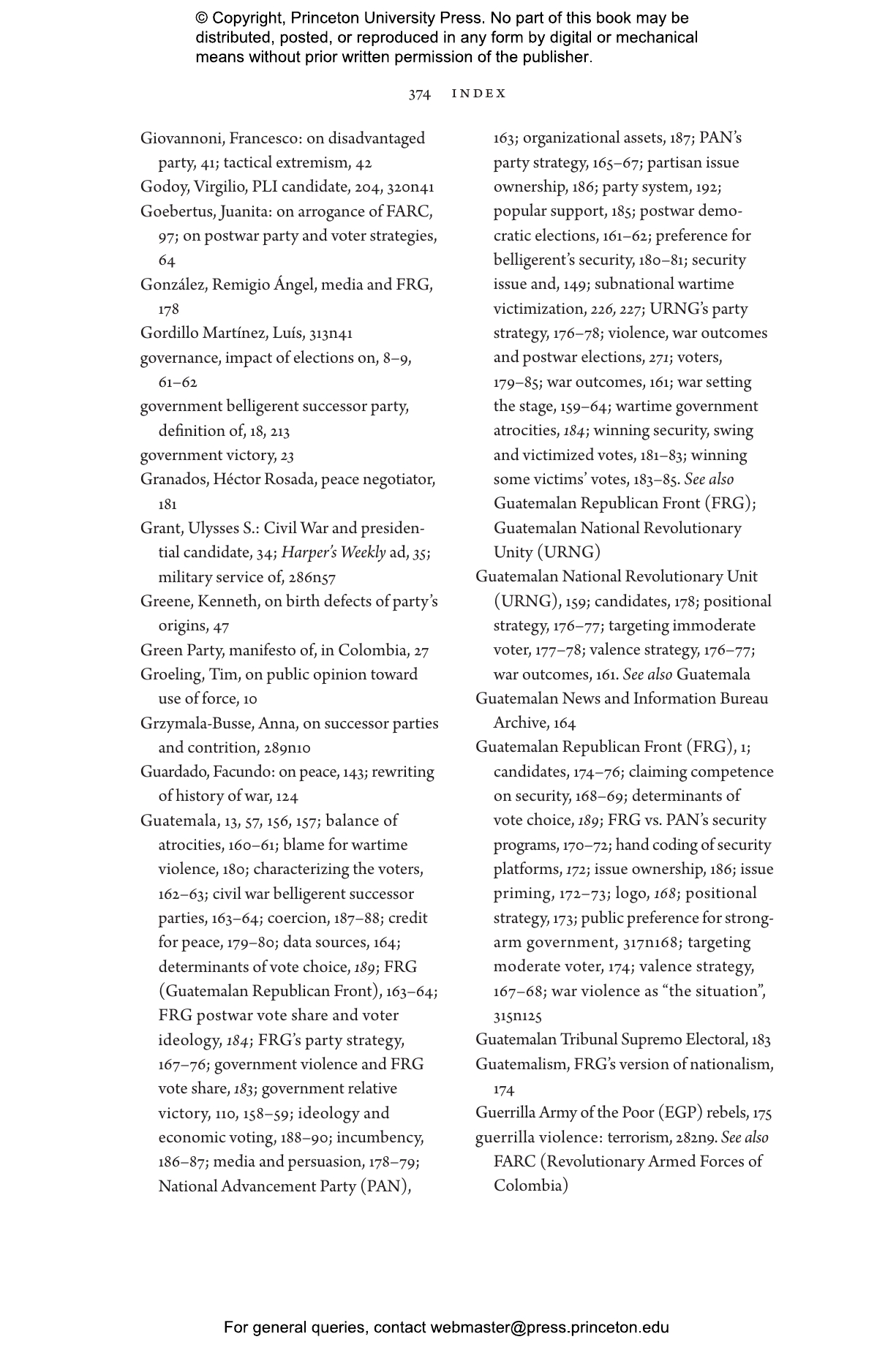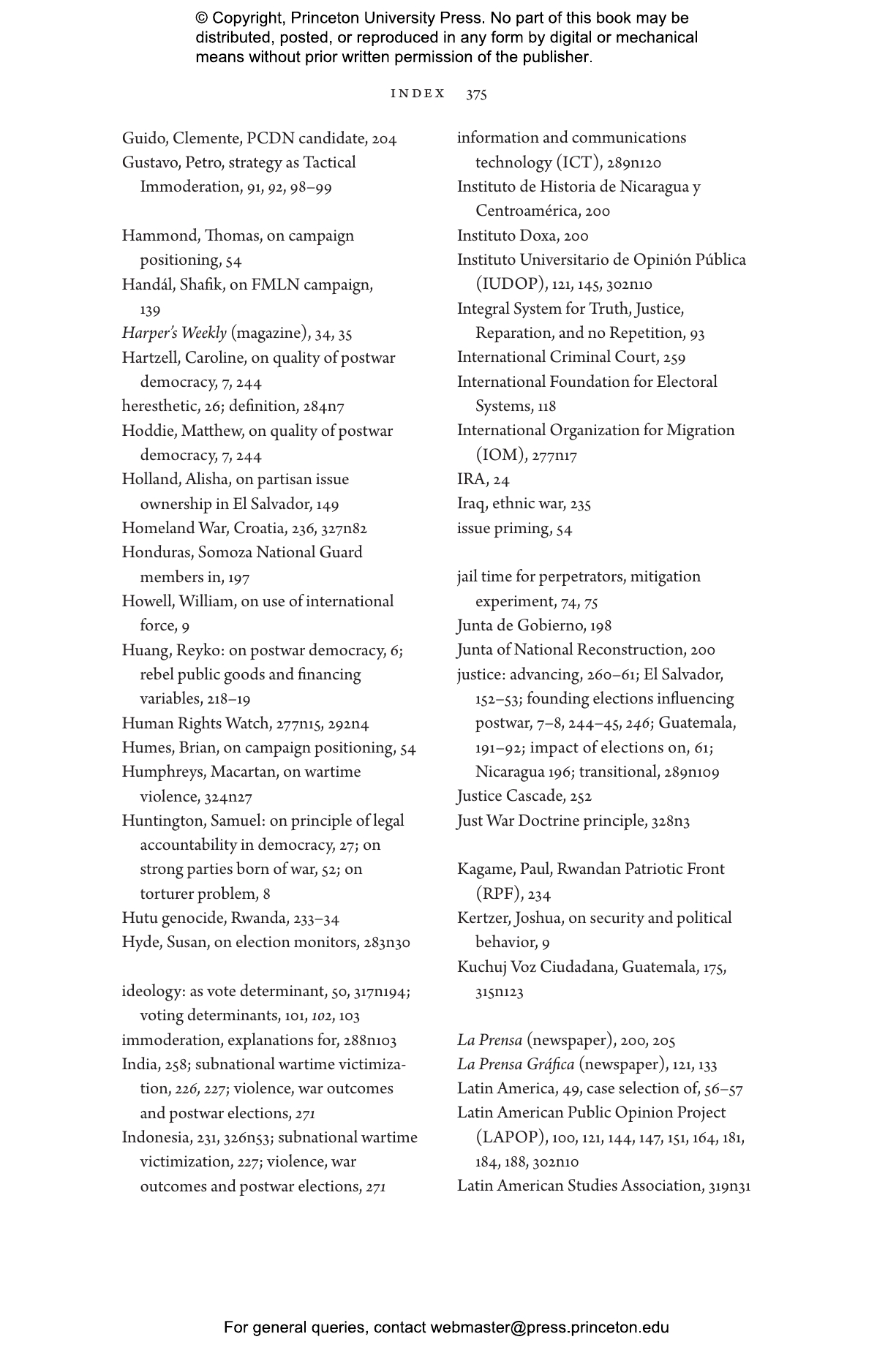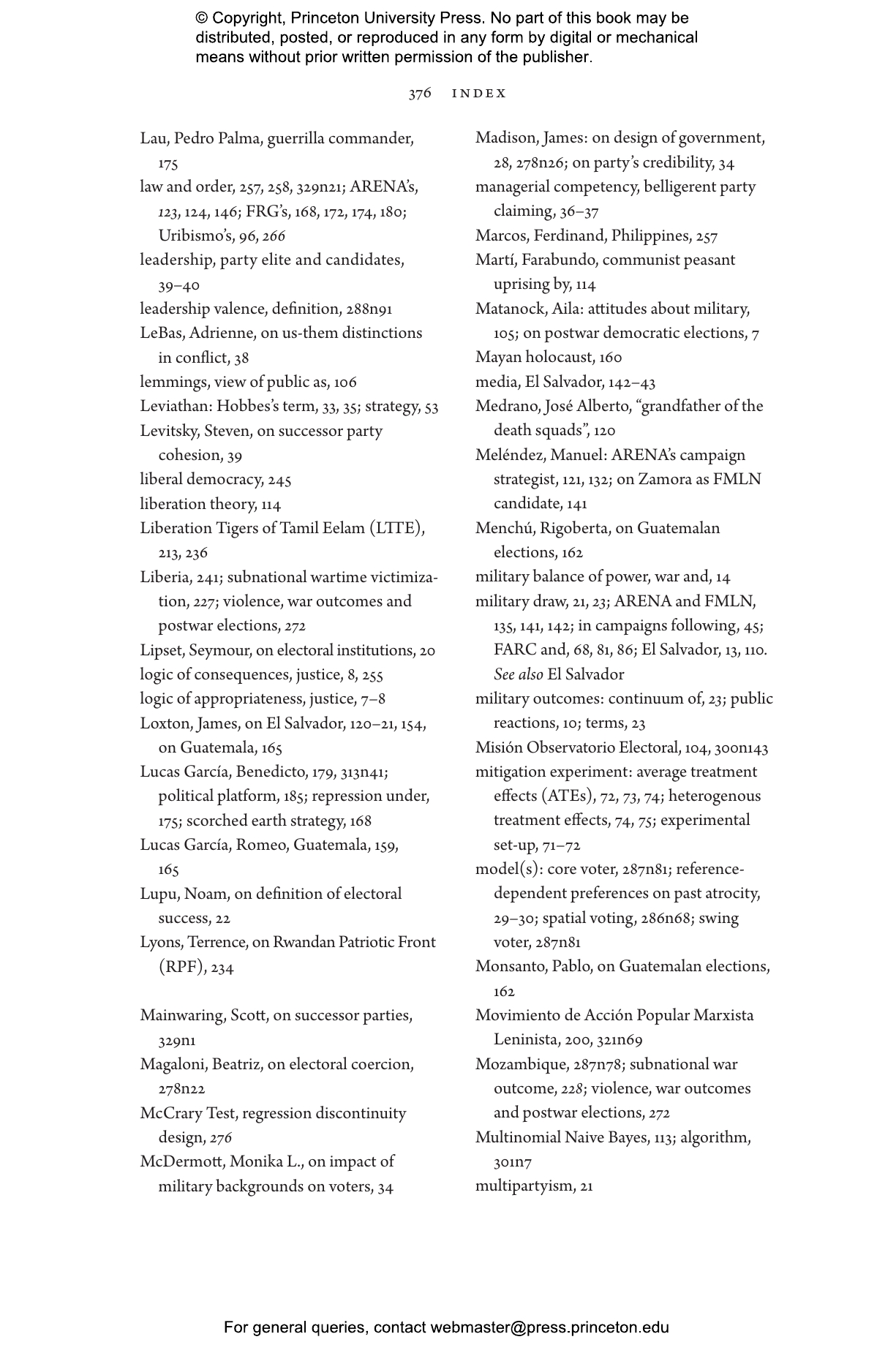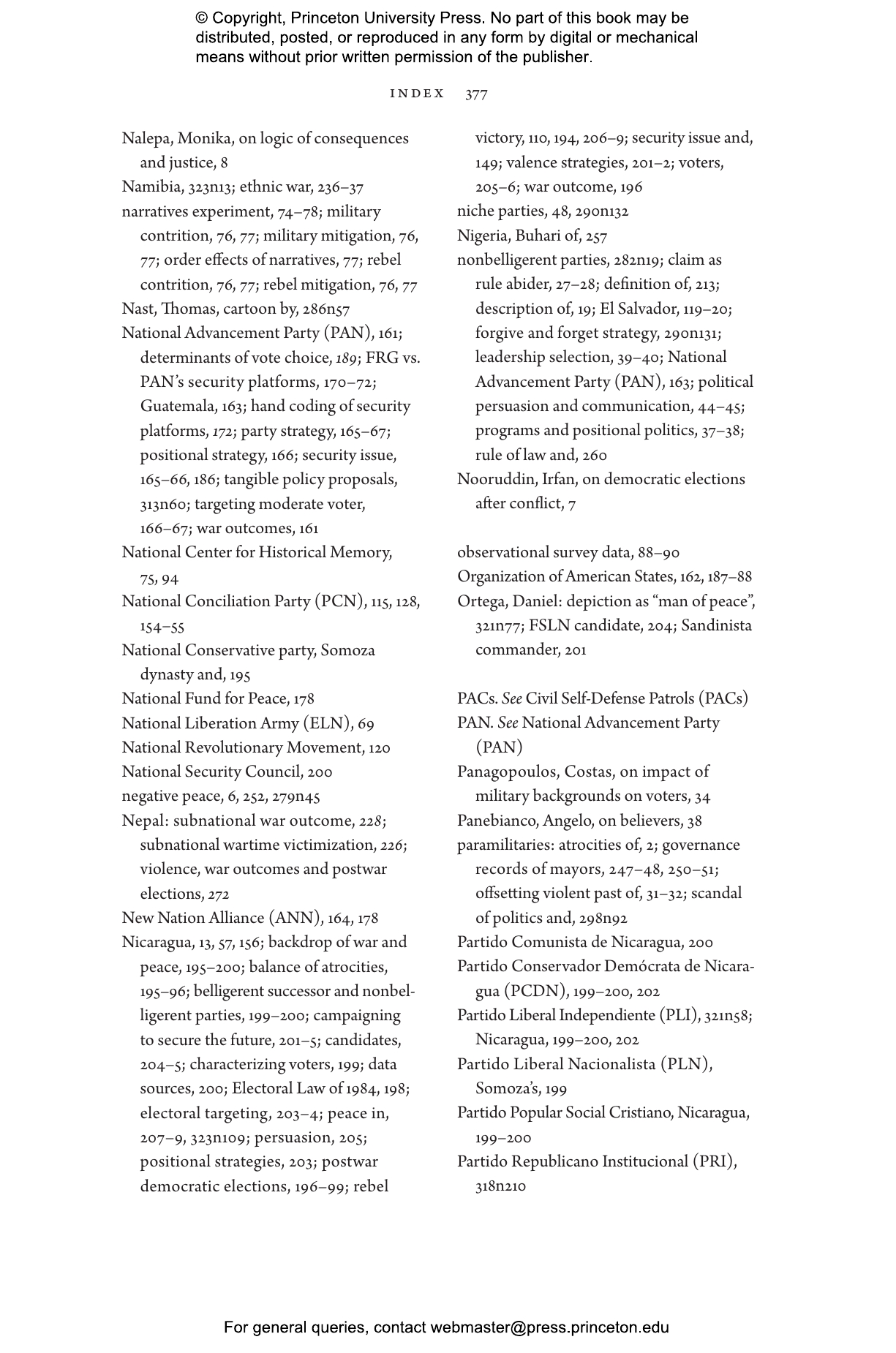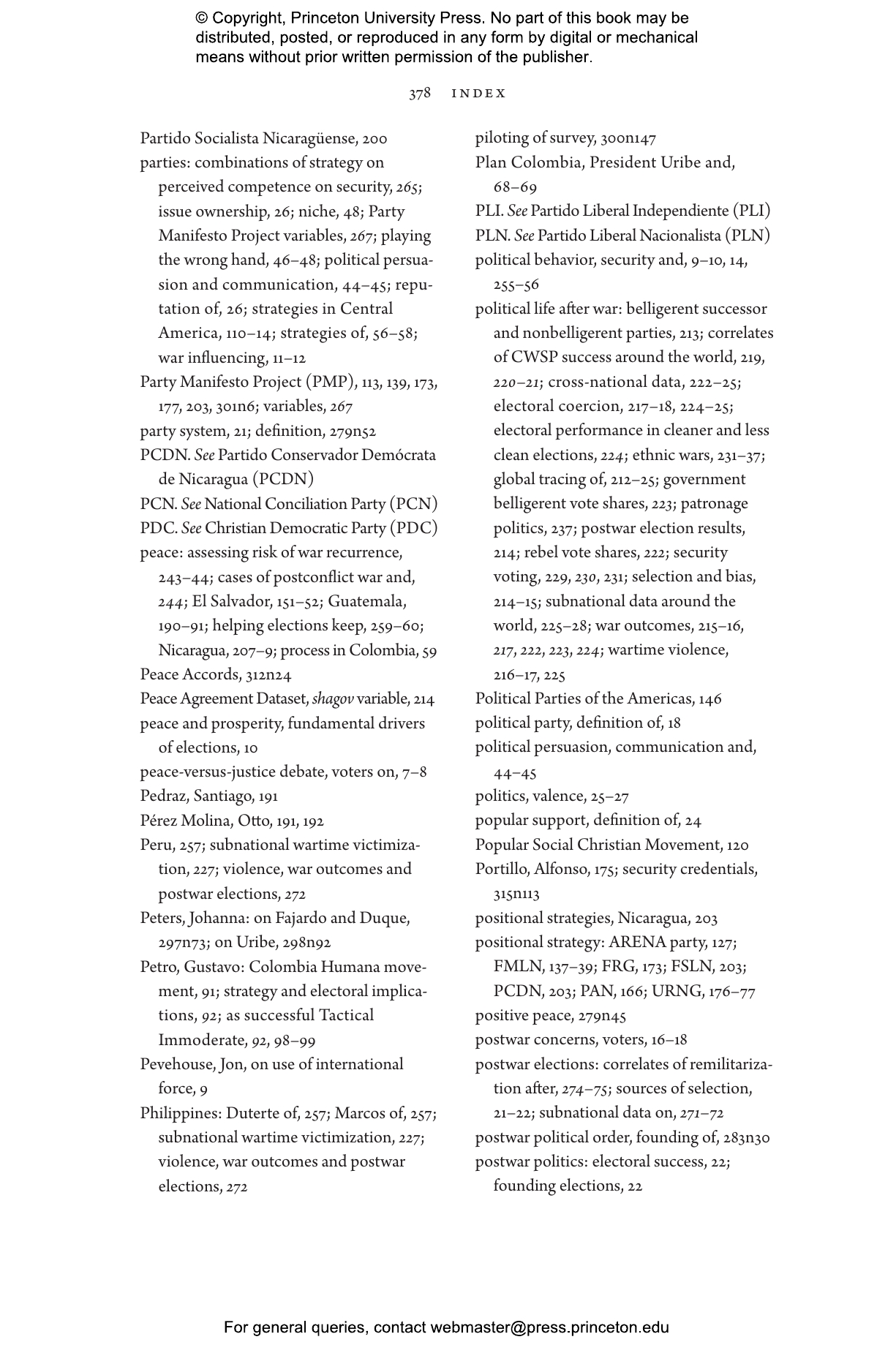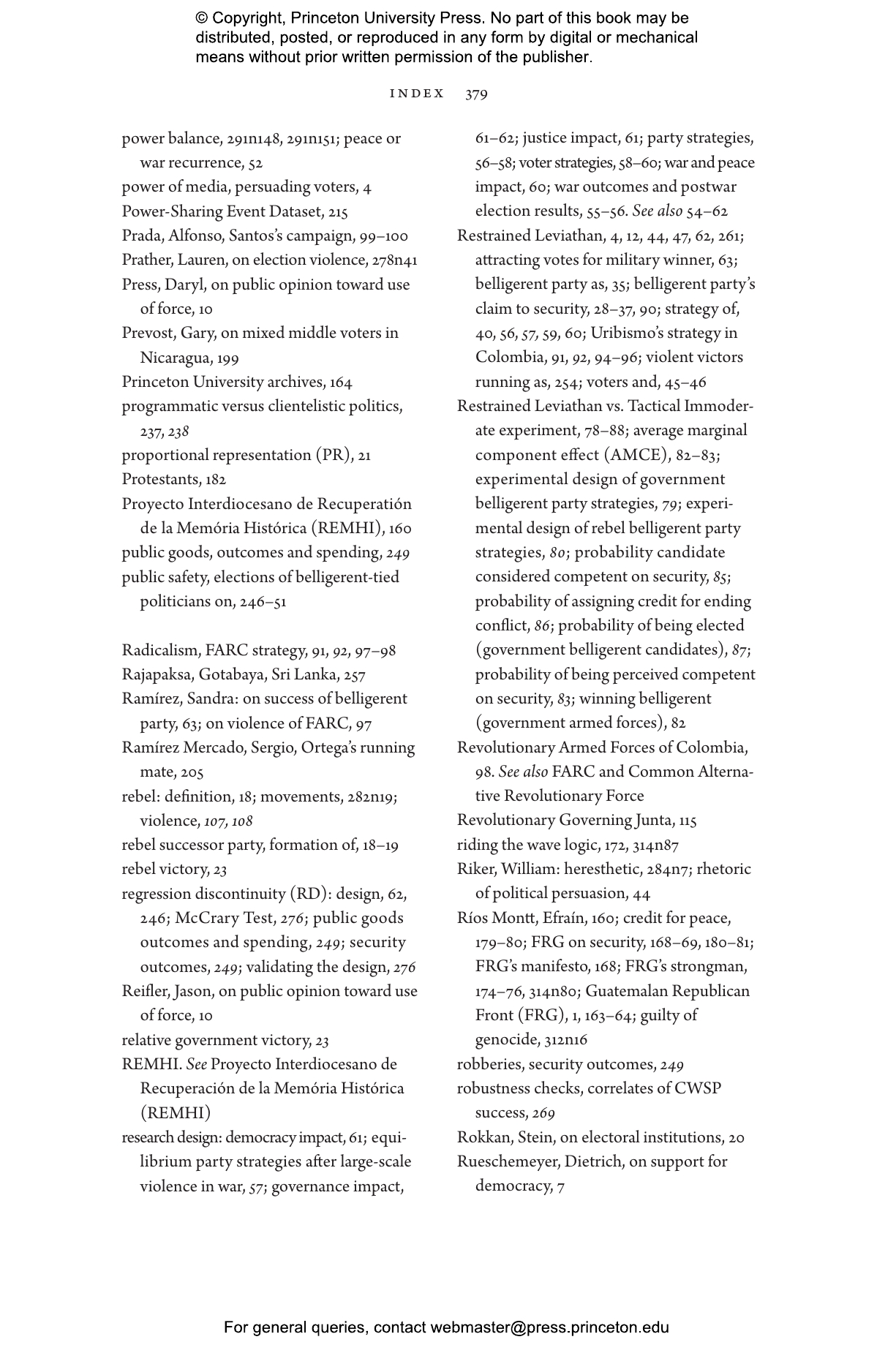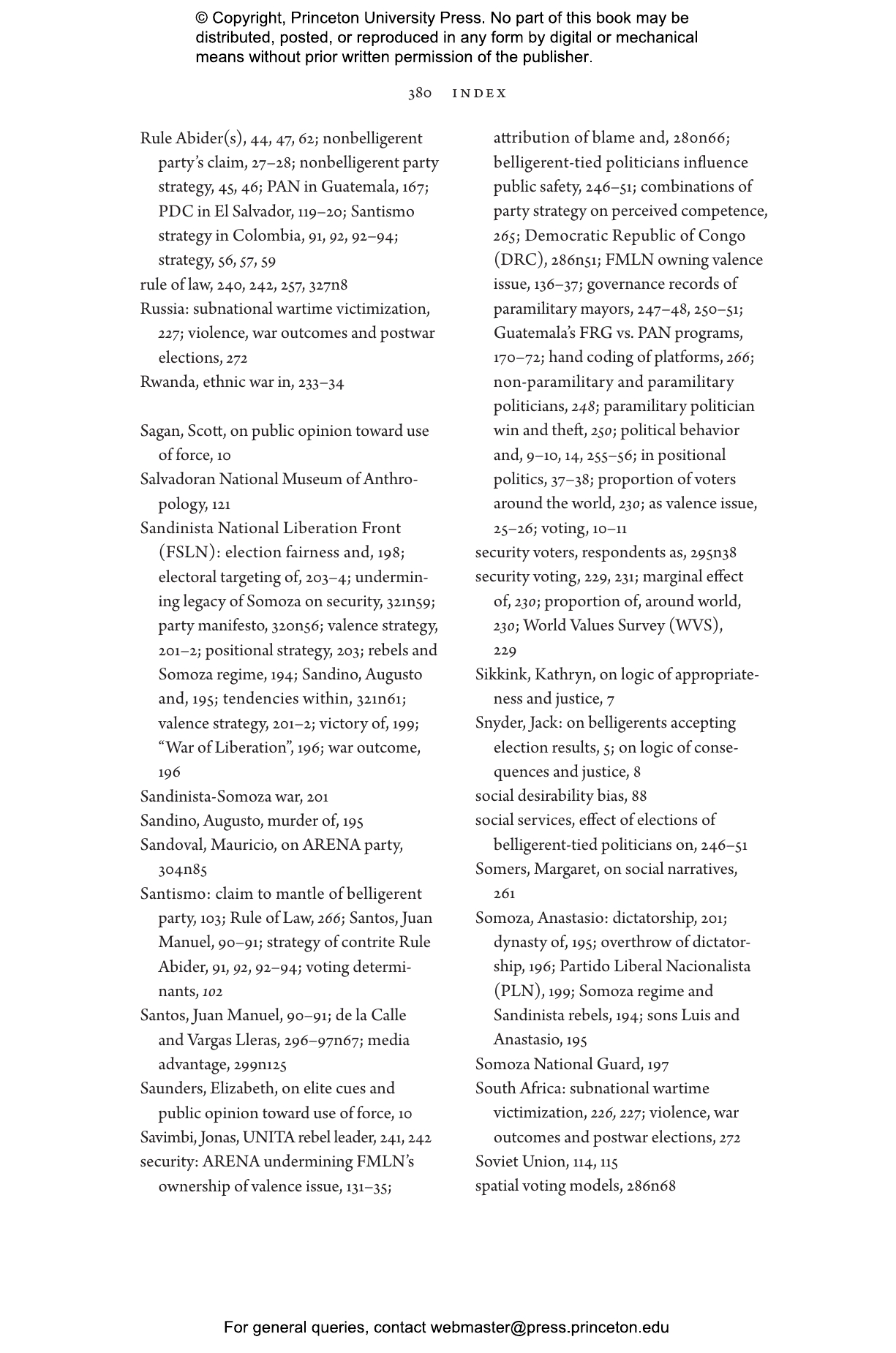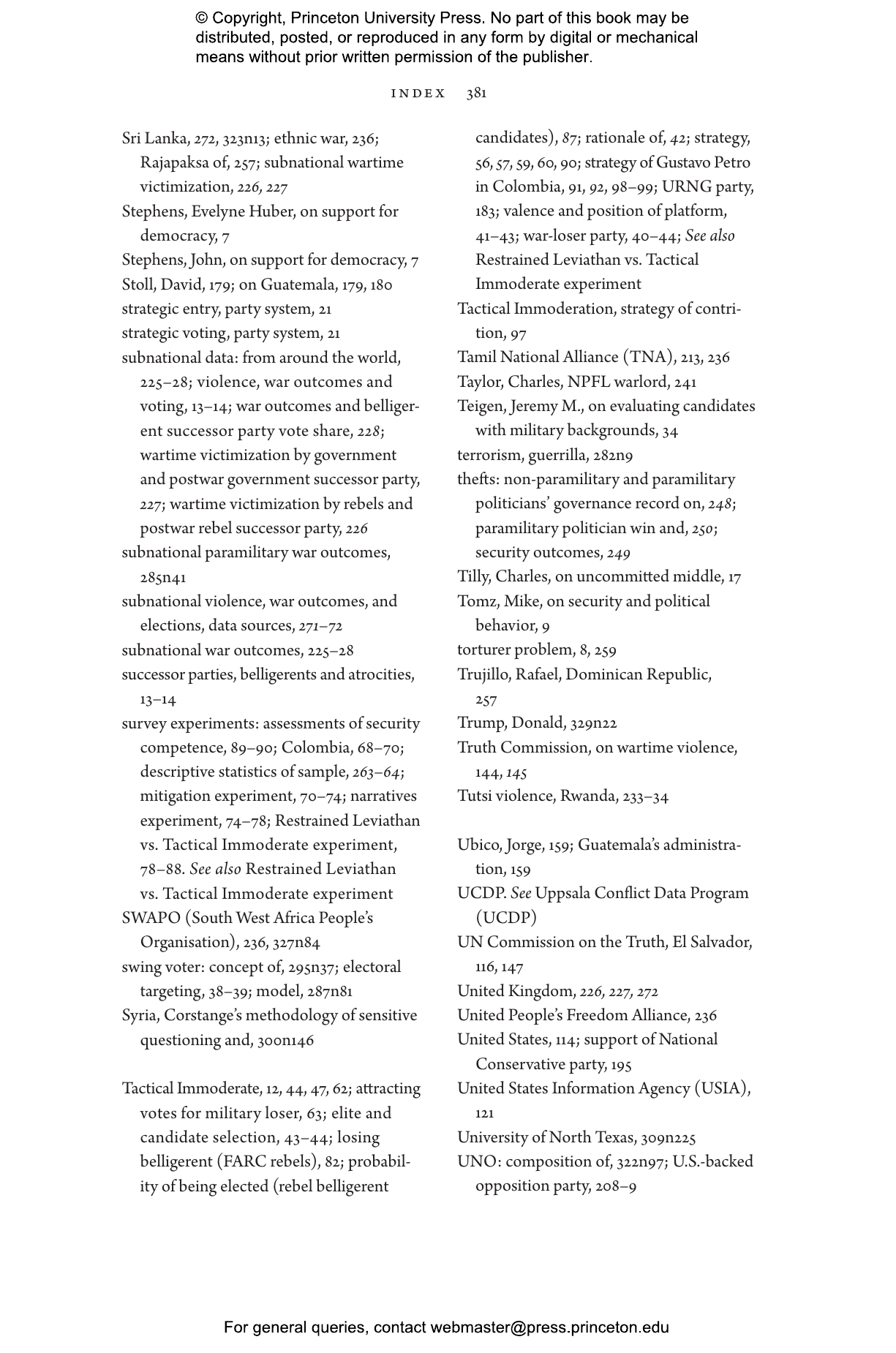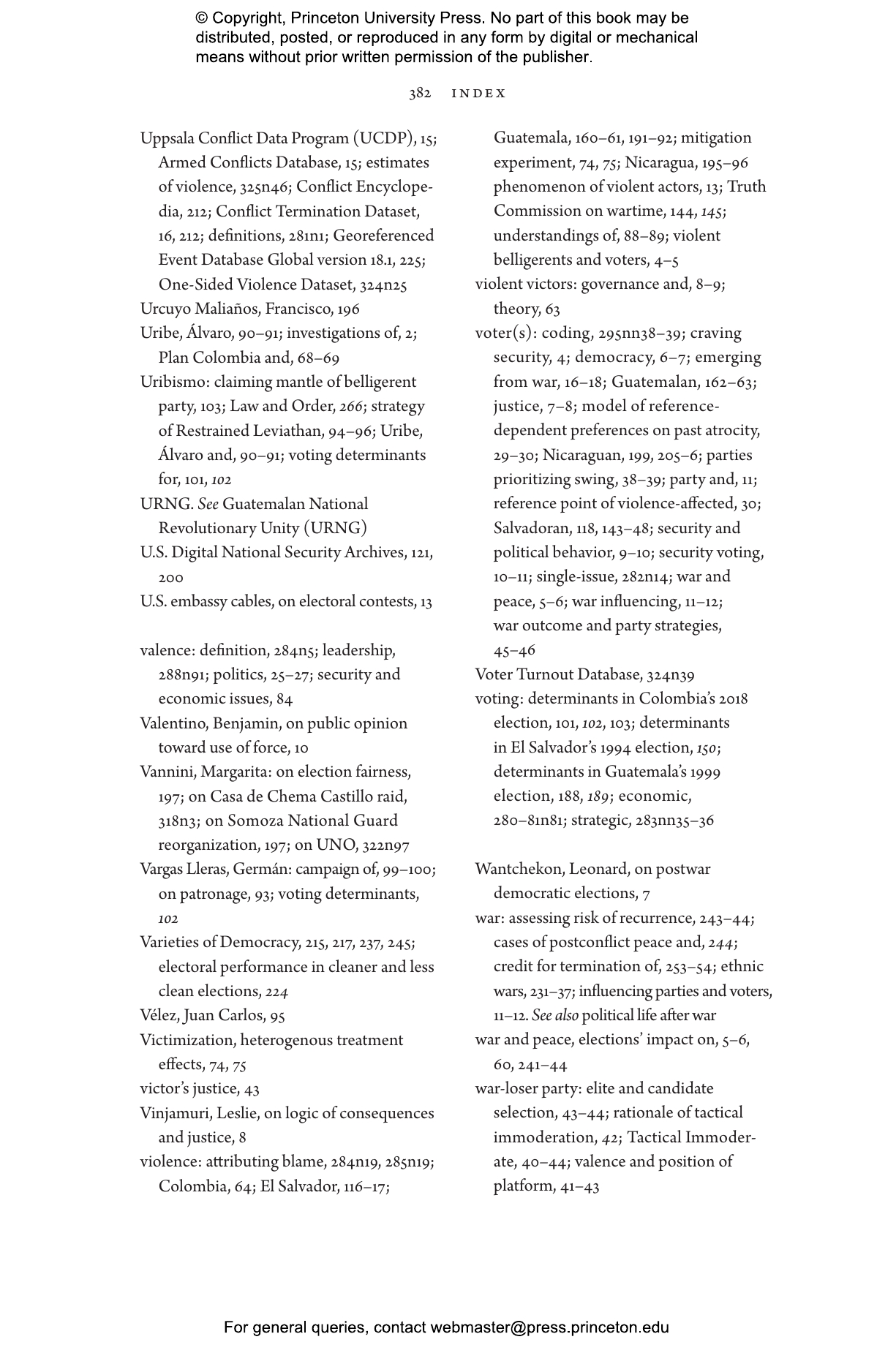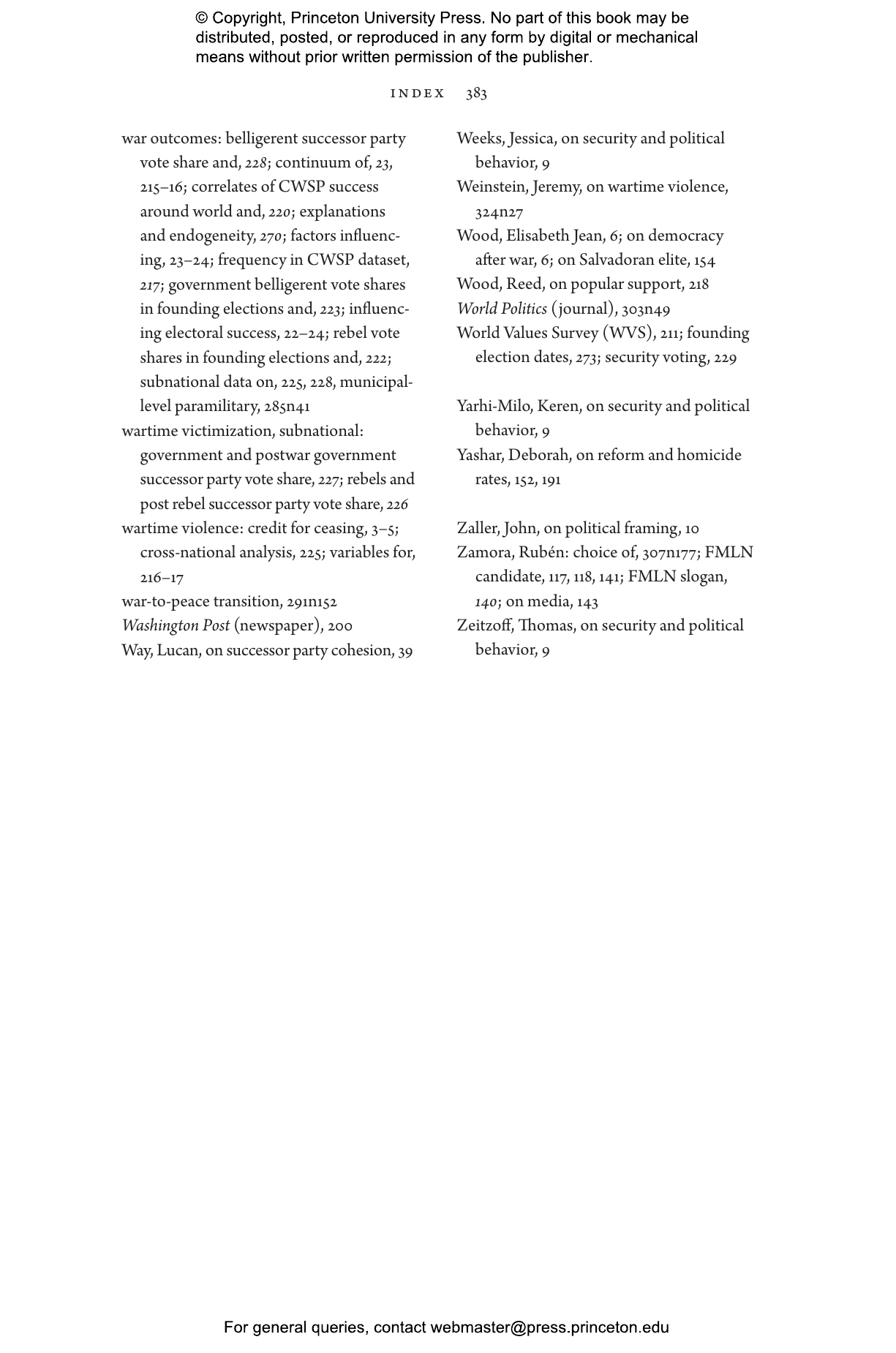One of the great puzzles of electoral politics is how parties that commit mass atrocities in war often win the support of victimized populations to establish the postwar political order. Violent Victors traces how parties derived from violent, wartime belligerents successfully campaign as the best providers of future societal peace, attracting votes not just from their core supporters but oftentimes also from the very people they targeted in war.
Drawing on more than two years of groundbreaking fieldwork, Sarah Daly combines case studies of victim voters in Latin America with experimental survey evidence and new data on postwar elections around the world. She argues that, contrary to oft-cited fears, postconflict elections do not necessarily give rise to renewed instability or political violence. Daly demonstrates how war-scarred citizens reward belligerent parties for promising peace and security instead of blaming them for war. Yet, in so casting their ballots, voters sacrifice justice, liberal democracy, and social welfare.
Proposing actionable interventions that can help to moderate these trade-offs, Violent Victors links war outcomes with democratic outcomes to shed essential new light on political life after war and offers global perspectives on important questions about electoral behavior in the wake of mass violence.
Awards and Recognition
- Winner of the Luebbert Best Book Award, Comparative Politics Section of the American Political Science Association
- Winner of the Leon Epstein Outstanding Book Award, Political Organizations and Parties section of the American Political Science Association
- Shortlisted for the Gregory Luebbert Best Book Prize, Comparative Politics section of the American Political Science Association
"Violent Victors is a rich, rigorous and comprehensive book that delves into the complex and nuanced relationship between wartime violence and postwar electoral politics, transitional justice and governance."鈥擫aia Balcells, International Affairs
"Articulates a fascinating and novel puzzle. . . . [and provides] a thorough consideration of alternative explanations."鈥擬ichael K. Miller, Perspectives on Politics
"A must-read."鈥擬auricio Rivera, Journal of Peace Research
"[A] penetrating study of founding elections in postwar societies. . . . [Violent Victors] is required reading for anyone interested in peacebuilding, justice, democracy, and governance after civil war."鈥擬anuel Mel茅ndez-S谩nchez, Peace & Change
"[O]utstanding. . . . Daly’s book has a number of methodological innovations that make it stand out, including carefully crafted cross-national evidence and strong case studies of civil war in three Central American countries: El Salvador, Guatemala, and Nicaragua. One of the book’s biggest contributions . . . is in blending work on civil war with a consideration of the political strategies of parties and a behavioral analysis of voters."鈥擸eilim Cheong and Stephan Haggard, Political Science Quarterly
“This is an impressive book in its breadth and comprehensive approach to the question of why violent political parties receive significant support in postwar elections, even when they have committed abuses against the citizenry.”—Susan D. Hyde, author of The Pseudo-Democrat’s Dilemma: Why Election Observation Became an International Norm
“A tour de force. Drawing on an original and counterintuitive theoretical argument and superb research methods, Daly addresses the puzzle of how political parties that commit mass atrocities in civil war win free and fair postwar elections. Violent Victors is an outstanding book.”—Scott Mainwaring, coauthor of Democracies and Dictatorships in Latin America: Emergence, Survival, and Fall
“In elections after civil wars, why do many voters support parties that engaged in mass violence against civilians? Sarah Zukerman Daly provides a surprising and compelling answer: the most ruthless fighters in war are perceived to be the political leaders most willing and able to keep the peace afterward. This is an important book.”—Scott D. Sagan, Stanford University
“In this masterful book, Daly reveals why citizens vote for political parties known to have committed atrocities in war. It is not due to fear, coercion, ideology, or ignorance. Instead, it is the result of a desperate desire for stability and security. Highly recommended for anyone interested in understanding why voters would reward paramilitary groups, violent militias, and warlords with political power.”—Barbara F. Walter, author of How Civil Wars Start
“Daly marshals an extraordinary array of perspectives and diversity of evidence, weaving them together in a powerful and compelling narrative. This is essential reading for both scholars and practitioners working on postwar politics.”—Jeremy M. Weinstein, Stanford University, author of Inside Rebellion: The Politics of Insurgent Violence
